Rechercher dans ce blog
Thursday, January 31, 2019
UAE Senior Diplomat Denies Hacking Americans

A United Arab Emirates senior diplomat denied Thursday the country had targeted "friendly countries" or American citizens in a cyberspying program that a Reuters report said involved a hacking team of U.S. mercenaries.
The Reuters investigation published Wednesday found that the UAE used a group of American intelligence contractors to help hack rival governments, dissidents and human rights activists. The contractors, former U.S. intelligence operatives, formed a core part of UAE's cyber hacking program called Project Raven.
Project Raven also targeted Americans, and the Apple Inc iPhones of embassy staff for France, Australia and the United Kingdom, according to former operatives and program documents reviewed by Reuters.
Apple has declined to comment and did not immediately respond to a request for comment Thursday.
When asked about Project Raven by reporters at a briefing in New York, UAE Minister of State for Foreign Affairs Anwar Gargash acknowledged the country has a "cyber capability," but denied targeting U.S. citizens or countries with which it has good relations.
"We live in a very difficult part of the world. We have to protect ourselves," Gargash said. "We don't target friendly countries and we don't target American citizens."
The French and U.K. embassies in Washington have declined to comment. A spokeswoman for the Australian ministry of foreign affairs has declined to comment. The U.S. State Department did not immediately respond to a request for comment.
Hit by Sanctions, Asia's Iran Crude Oil Imports Drop to 3-Year Low in 2018
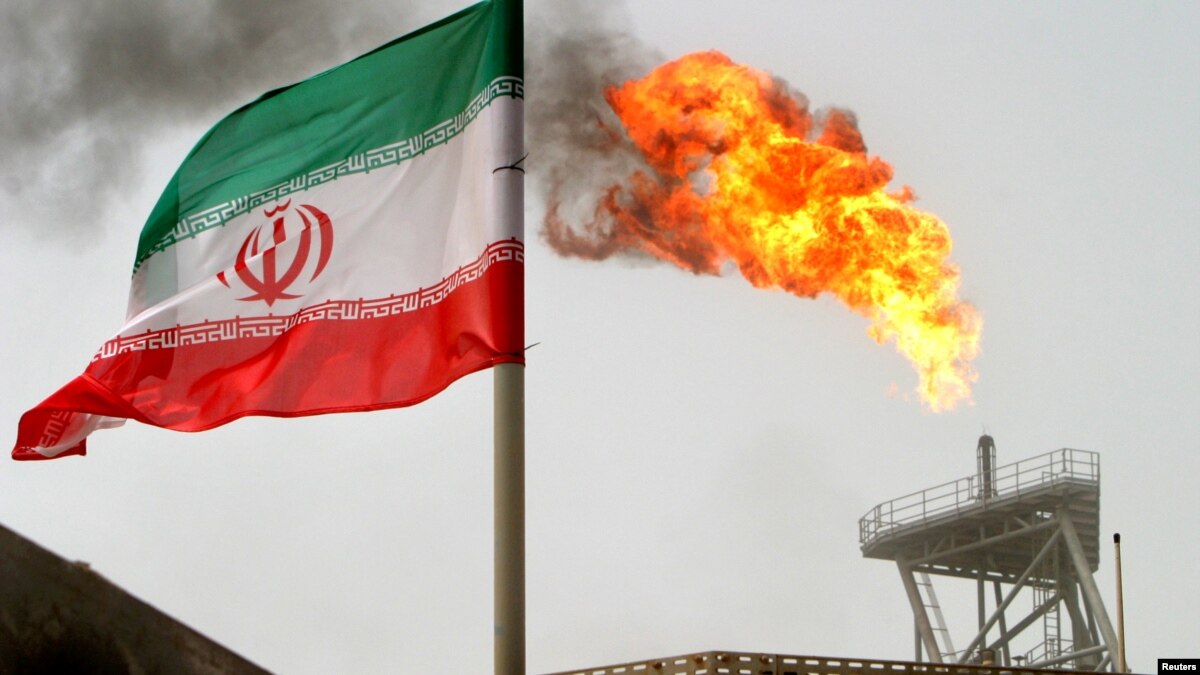
Iranian crude oil imports by Asia's top four buyers dropped to the lowest volume in three years in 2018 amid U.S. sanctions on Tehran, but China and India stepped up imports in December after getting waivers from Washington.
Asia's top four buyers of Iranian crude — China, India, Japan and South Korea — imported a total 1.31 million barrels per day (bpd) in 2018, down 21 percent from the previous year, data from the countries showed.
That was the lowest since about 1 million bpd in 2015, when a previous round of sanctions on Iran led to a sharp drop in Asian imports, Reuters data showed.
The United States reimposed sanctions on Iran's oil exports last November as it wants to negotiate a new nuclear deal with the country. U.S. officials have said they intend to reduce the Islamic Republic's oil exports to zero.
On a monthly basis, Asia's imports from Iran rebounded to a three-month high of 761,593 bpd in December as China and India stepped up purchases after Washington granted eight countries waivers from the Iranian sanctions for 180 days from the start of November.
"We expect Iranian exports to Asia to remain stable at around 800,000 barrels per day until May, when the waivers expire," said Energy Aspects analyst Riccardo Fabiani.
In December, China's imports climbed above 500,000 bpd for the first time in three months, while India's imports rose above 302,000 bpd.
Japan and South Korea did not import any Iranian crude that month because they were still sorting out payment and shipping issues, but the countries have resumed oil lifting from Iran this month.
During the 180-day period, China can import up to 360,000 bpd of Iranian oil, while India's imports are restricted to 300,000 bpd. South Korea can import up to 200,000 bpd of Iranian condensate.
"After May, it will all depend on the U.S. administration's decisions, which at the moment remain completely obscure. On balance, they are likely to extend the current waivers, although rumors are that there could be a significant cut in waivered volumes," Fabiani said.
As a precaution, Indian Oil Corp, the country's top refiner, is looking for an annual deal to buy U.S. crude as it seeks to broaden its oil purchasing options, its chairman said Wednesday.
Facebook Takes Down Vast Iran-Led Manipulation Campaign
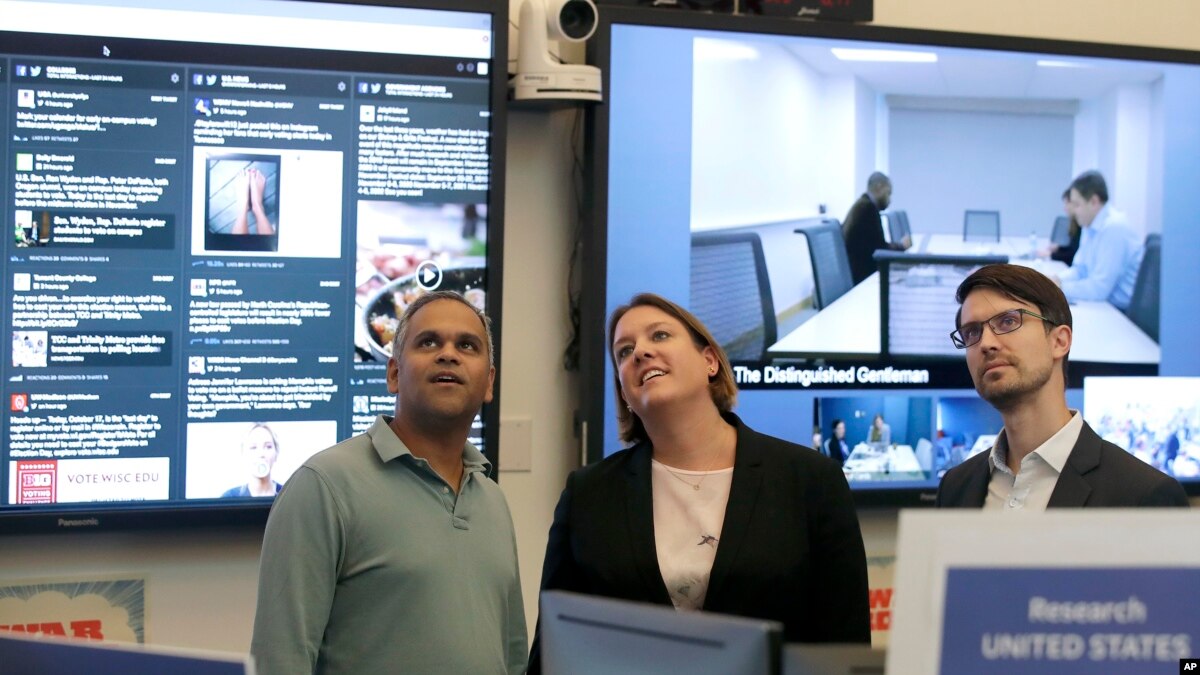
Facebook said Thursday it took down hundreds of "inauthentic" accounts from Iran that were part of a vast manipulation campaign operating in more than 20 countries.
The world's biggest social network said it removed 783 pages, groups and accounts "for engaging in coordinated inauthentic behavior tied to Iran."
The pages were part of a campaign to promote Iranian interests in various countries by creating fake identities as residents of those nations, according to a statement by Nathaniel Gleicher, head of cybersecurity policy at Facebook.
The announcement was the latest by Facebook as it seeks to stamp out efforts by state actors and others to manipulate the social network using fraudulent accounts.
"We are constantly working to detect and stop this type of activity because we don't want our services to be used to manipulate people," Gleicher said.
"We're taking down these pages, groups and accounts based on their behavior, not the content they post. In this case, the people behind this activity coordinated with one another and used fake accounts to misrepresent themselves, and that was the basis for our action."
The operators "typically represented themselves as locals, often using fake accounts, and posted news stories on current events," including "commentary that repurposed Iranian state media's reporting on topics like Israel-Palestine relations and the conflicts in Syria and Yemen," Gleicher said.
"Although the people behind this activity attempted to conceal their identities, our manual review linked these accounts to Iran."
The operation dating back to as early as 2010 had 262 pages, 356 accounts, and three groups on Facebook, as well as 162 accounts on Instagram and were followed by about two million users.
Facebook said the fake accounts were part of an influence campaign that operated in Afghanistan, Albania, Algeria, Bahrain, Egypt, France, Germany, India, Indonesia, Iran, Iraq, Israel, Libya, Mexico, Morocco, Pakistan, Qatar, Saudi Arabia, Serbia, South Africa, Spain, Sudan, Syria, Tunisia, U.S., and Yemen.
Facebook began looking into these kinds of activities after revelations of Russian influence campaigns during the 2016 U.S. election, aimed at sowing discord.
Lebanon Agrees New Government, PM Vows Bold Reforms
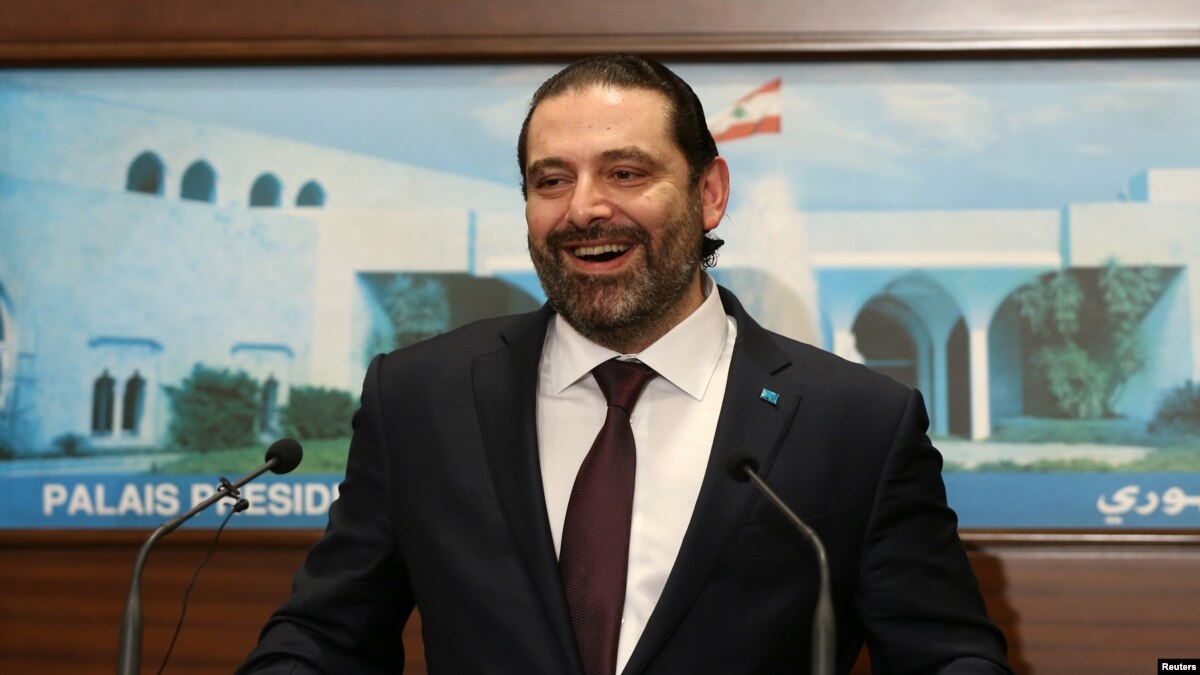
Lebanon formed a new national unity government on Thursday, ending nine months of wrangling, and Prime Minister Saad al-Hariri said bold moves were needed without delay to address chronic problems facing the heavily indebted state.
The government of Hariri, who has Western backing, includes most parties including the heavily armed, Iran-backed Hezbollah, which emerged stronger from the parliamentary election last May thanks to gains by its allies. Hezbollah chose the new health minister.
Some Lebanese bond prices jumped to their highest level since August in response to the news, and celebratory fireworks burst over Beirut shortly after the deal was announced.
Hariri must now deliver on promises to rein in public spending to address the dire state finances with reforms that could unlock billions of dollars in pledged aid and loans for infrastructure investment.
In a statement read from the presidential palace, Hariri apologized to the people of Lebanon for the time it had taken to form the government and noted that they were "living in concern" over the economy.
The time for "painkillers" was over, he said. "No one can put their head in the sand any more ... All the problems are known and the causes of the corruption and waste and administrative deficiency are also known," he said.
"The solution is with a clear programme and bold reforms ... and developing laws that cannot be delayed."
Earlier on Thursday he said the new government would be forced to "take difficult decisions" to reduce spending.
Concerns have grown over the state of the economy and government finances. Finance Minister Ali Hassan Khalil – who retained his post - warned last month that Lebanon was in an economic crisis that has "started to turn into a financial one".
Lebanon's public debt is one of the highest in the world set against the size of its economy, and it has suffered low growth for years for reasons including regional turmoil.
Gebran Bassil, a political ally of Hezbollah who is the son-in-law of President Michel Aoun and leads the political party he founded, remained foreign minister.
The defense portfolio, significant partly due to major U.S. military aid, went to another Aoun loyalist, Elias Bou Saab.
Hariri nominated Rayya Hassan, a former finance minister, to the post of interior minister. She is one of four women in this cabinet, compared with only one in the last cabinet.
While not a Hezbollah member, Health Minister Jamil Jabak's appointment has been seen as a signal of its determination to exercise more direct sway over government after playing marginal roles in past cabinets.
The ministry has the fourth-biggest budget in the state. Hezbollah, which is designated as a terrorist group by Washington and has come under fresh U.S. sanctions, also has two other cabinet seats.
The anti-Hezbollah Lebanese Forces party, which nearly doubled its number of MPs last May, has ceded ground at least twice in the negotiations, enabling the government to be formed.
Tough reforms
Hezbollah together with groups and individuals that support its possession of weapons, won more than 70 of parliament's 128 seats in the May election.
Hariri lost more than a third of his lawmakers but kept his status as the leading Sunni and so returns as premier for the third time. The post is reserved for his sect under Lebanon's sectarian system of rule.
The last big hurdle was a dispute over how Hezbollah's Sunni allies should be represented in cabinet, resolved by the inclusion of Hassan Mrad, the son of the pro-Hezbollah and pro-Damascus MP Abdul Rahim Mrad.
While Lebanon's economy and financial system have shown resilience during previous periods of political paralysis, investor concerns have been reflected of late in bond prices.
Jason Tuvey, senior emerging markets economist at Capital Markets in London, said the government would need to show it was able to implement tough reforms.
"It's taken those nine months to put together a government, let alone how long it will take to agree on the very harsh fiscal consolidation that would be needed to put the debt position on a firmer footing," he said.
The formation of the government is the third boost for Lebanese bonds in two weeks. They rose last week when Qatar said it was investing $500 million in them, and again when Saudi Arabia said it would support continue supporting Lebanon.
Read More Lebanon Agrees New Government, PM Vows Bold Reforms : http://bit.ly/2D0t4RHKing Tut Tomb Restored to Prevent Damage From Visitors
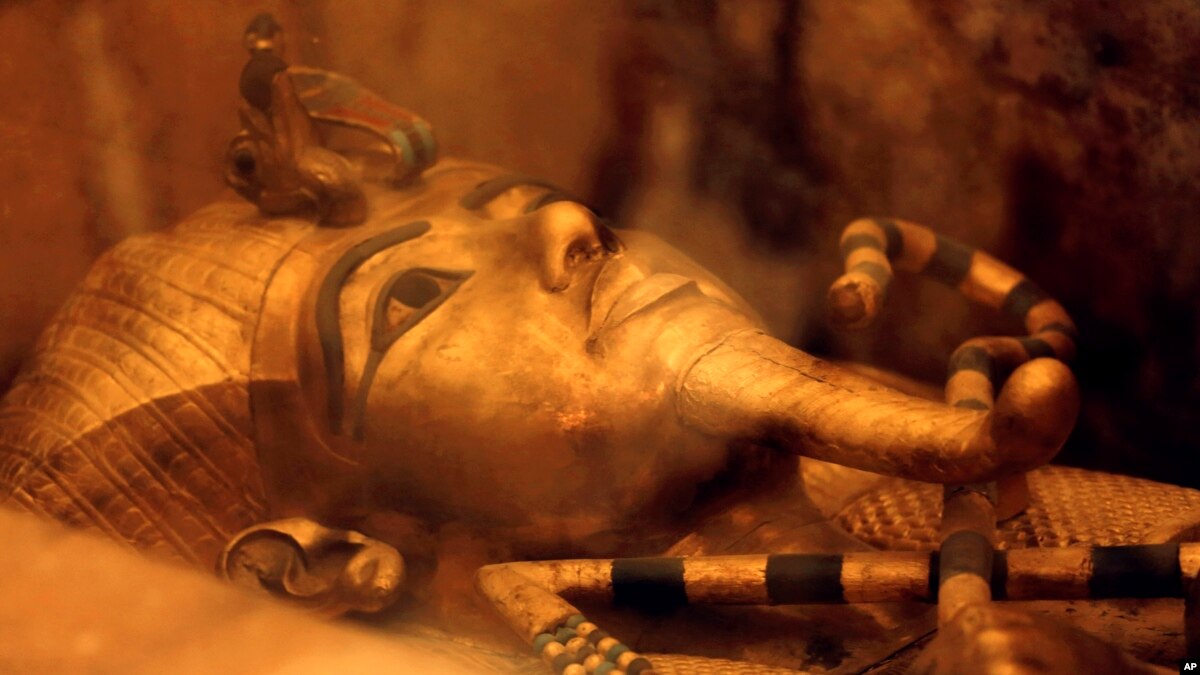
The tomb of Egypt's famed boy pharaoh, King Tutankhamun, has undergone restoration to help minimize damage by tourists.
The work, done by the Getty Conservation Institute after years of research and officially presented Thursday, aims to minimize scratches, dust damage and microbiological growth from breath and humidity brought in by tourists.
The nearly intact tomb of King Tut, who ruled Egypt more than 3,000 years ago, was discovered in 1922 by Howard Carter in the Valley of the Kings, located on the west bank of the Nile River in Luxor.
For many, King Tut embodies ancient Egypt's glory, because his tomb was packed with the glittering wealth of the 18th Dynasty, which ruled from 1569 to 1315 B.C.
Iran: US-Sanctions Workaround by EU Soon to Be Announced
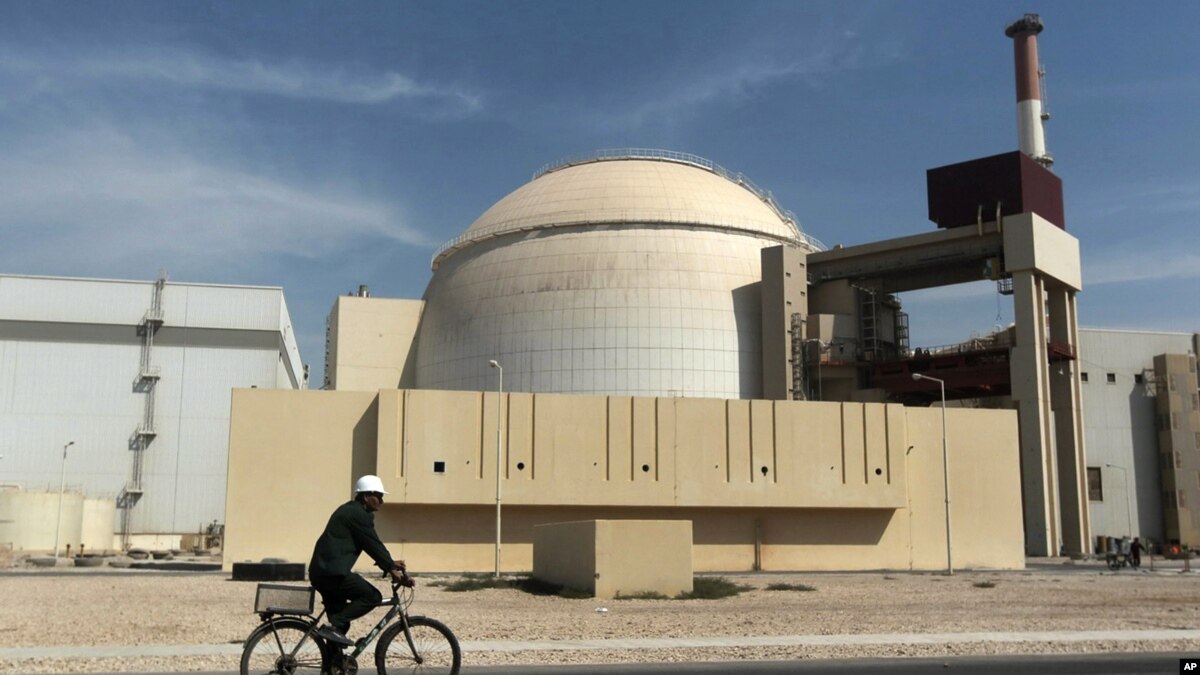
Three European nations appeared poised Thursday to announce they have created a way for Iran to continue trade with them and avoid re-imposed U.S. sanctions, two Iranian officials said, setting up a potential collision with President Donald Trump's maximalist approach against Tehran.
France, Germany and the United Kingdom created a state company, known as a “special purpose vehicle,” to allow Iran to continue to trade vital goods like medicine and food, according to German media reports. That allows companies to be insulated, in theory, from American sanctions by dealing with a third party.
EU foreign ministers were set to meet Thursday in Bucharest, Romania. There was no immediate announcement acknowledging the creation of the trade vehicle, though Belgian Foreign Minister Didier Reynders said the EU wanted to continue to support the nuclear deal.
“The most important thing is to show our American colleagues that we are moving in the same direction on a whole series of issues such as ballistic missiles or Iran's regional influence, but that we do have a difference of opinion on the nuclear agreement,” he said. “I hope we can also find a solution for this vehicle.”
Abbas Araghchi, Iran's deputy foreign minister, told Iranian state television by telephone on Thursday that he expected the “special purpose vehicle” to be ready for business in one or two months.
“The next issue is how European companies are willing to join SPV with this mechanism,” he said.
Iran's ambassador to the United Kingdom, Hamid Baeidinejad, similarly tweeted he believed the start of the program was imminent.
Trump's decision to pull America out of the Iran nuclear deal in May pushed the three European nations to create the method. The 2015 atomic accord lifted economic sanctions on Iran in exchange for Tehran limiting its enrichment of uranium.
In recent months, Iranian officials have increasingly threatened to resume higher enrichment, putting more pressure on Europeans to come up with a way to get around the sanctions.
How America will respond remains in question.
Report: Germany, France, Britain to Create Way to Trade with Iran
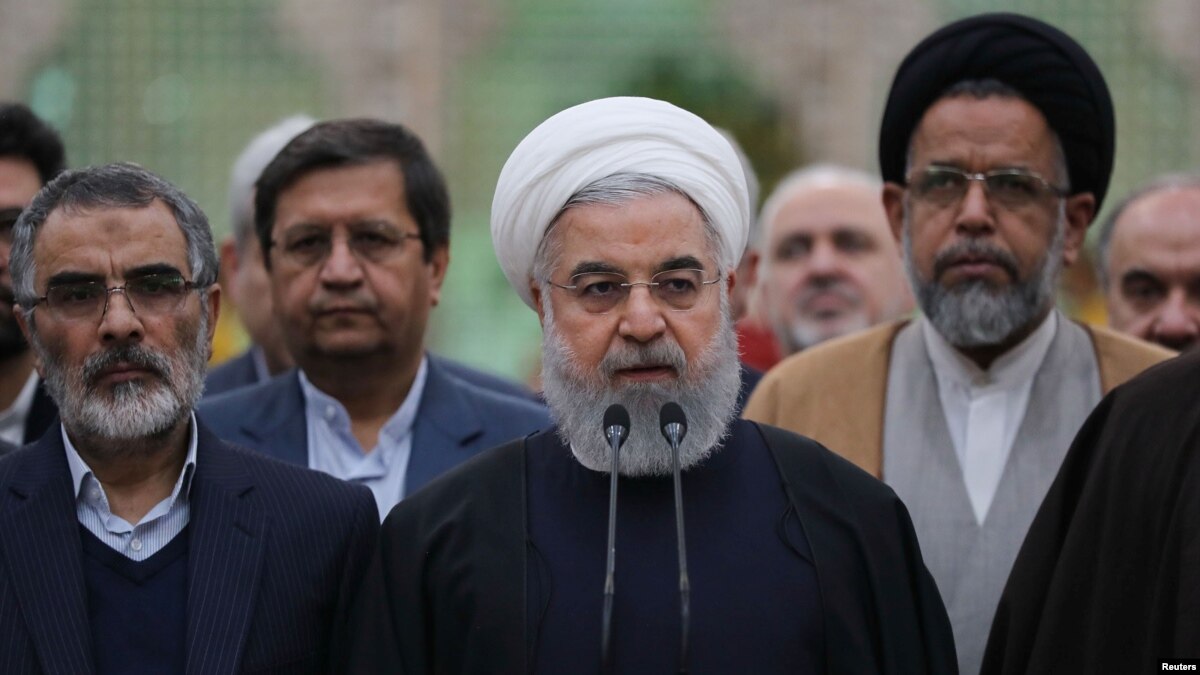
Germany, France and Britain have officially set up a European mechanism to facilitate non-dollar trade with Iran and circumvent U.S. sanctions, two diplomats said Thursday.
The EU has been preparing the system, in effect a clearinghouse that avoids monetary transfers in dollars between the EU and Iran for months although it is unlikely to become operational for several months because of technical details.
German broadcaster NDR reported that the European Special Purpose Vehicle (SPV) would be named INSTEX-Instrument in Support of Trade Exchanges.
The idea is for the SPV to help preserve the economic nuclear program under a 2015 deal with world powers.
Small transactions
Europe has been keen to show good faith toward Iran since U.S. President Donald Trump withdrew from the deal last year.
The entity is not likely to revive trade with Iran because its focus will primarily be food, medicine and humanitarian, with small transactions. It will not be used for oil-related transactions that have been hit hard by U.S. sanctions.
“It won’t change things dramatically, but it’s an important political message to Iran to show that we are determined to save the JCPOA,and also the United States to show we defend our interests despite their extraterritorial sanctions,” one European diplomat said.
Worsening relations
However, relations between Tehran and the EU have worsened, and the EU this month imposed its first sanctions on Iran since the 2015 deal in reaction to Iran’s ballistic missile tests and assassination plots on European soil.
In a symbolic move, the EU added two Iranian individuals and an Iranian intelligence unit to the bloc’s terrorist list.
EU member states are also finalizing a joint statement on Iran to outline concerns about Tehran’s regional policies and ballistic missile program, but also to show their desire to maintain the 2015 Iran nuclear deal.
France and Germany had taken joint responsibility for the SPV. A German banker would head up the vehicle, which would be based in France. France, Britain and Germany will be shareholders and they hope other states will join.
Wednesday, January 30, 2019
Iranian Dervish Woman’s Health Declines in Prison
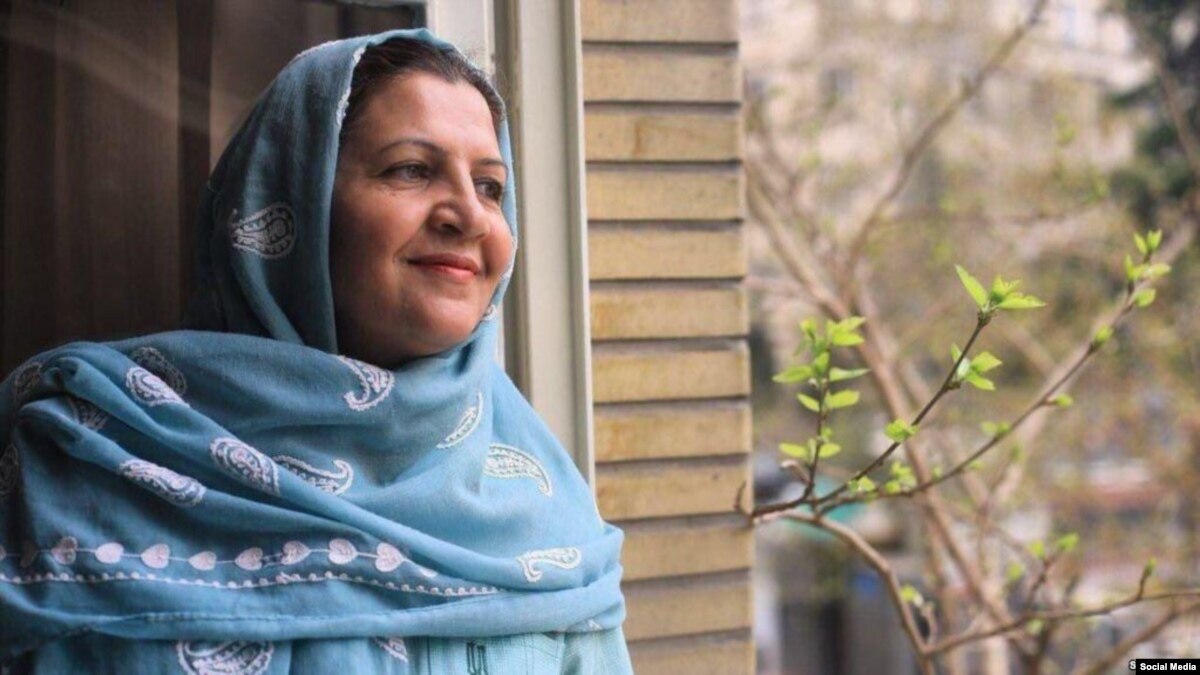
A news outlet covering Iran’s Dervish religious minority says a female Dervish prisoner beaten during her arrest 11 months ago has suffered a further health decline from exposure to secondhand smoke in jail.
In a report published Monday, the news site, Majzooban Noor, quoted cellmates of detainee Shokoufeh Yadollahi as saying she has suffered severe headaches and weakness because of the fumes from opioid and cigarette use by other prisoners in her ward.
Majzooban Noor did not explain how it obtained the information from Yadollahi’s cellmates at Qarchak women’s prison, also known as Shahr-e-Ray prison, east of Tehran. Its report cited Dervish inmates at Qarchak as complaining that other prisoners in their ward, convicted of drug trafficking, robbery and murder, have been smoking opioids and cigarettes in shared spaces such as bathrooms and showers.
A reliable source in Iran’s Dervish community confirmed Majzooban Noor’s account of Yadollahi’s declining health in a message to VOA Persian.
There has been no official comment in Iranian state media on the treatment of Yadollahi or other Dervish women at Qarchak prison.
Amnesty International
London-based rights group Amnesty International has reported that eyewitnesses saw Iranian security forces severely beat Yadollahi at the time of her February 2018 arrest, resulting in head injuries. Iranian security forces detained her and several hundred other Dervishes for involvement in antigovernment protests that turned violent in Tehran.
Amnesty has said Yadollahi and other Dervish women arrested in those protests have been treated badly and arbitrarily detained at Qarchak since.
Human Rights Watch
In an email to VOA Persian on Wednesday, Tara Sepehri Far, an Iran researcher at New York-based group Human Rights Watch, said HRW has learned from its own source that Yadollahi’s lack of adequate access to medical treatment in prison has led to complications in her vision and sense of smell.
“The transfer (into Qarchak) of new prisoners who allegedly smoke cigarettes and drugs does really affect her negatively,” Sepehri Far said.
A 2011 report by New York-based health news site Everyday Health says cigarette smoke inhaled directly or secondhand is one of the 11 biggest triggers of headaches. “Nicotine … changes the size of blood vessels in your brain, and that can cause headache,” the report says.
Sepehri Far also said the use of drugs is not uncommon in Iranian prisons.
“I do not have updated information about Qarchak prison, but we have testimonies from several political prisoners who served their time in other prisons, and they speak about drug trafficking and usage in (those) prisons,” she said.
Iran’s government views Dervishes, also called Sufis, as heretics and subjects them to continued scrutiny and harassment.
This article originated in VOA’s Persian Service. Ramin Haghjoo contributed from Washington.
Saudi Coalition Threatens Force to Prod Yemen Rebels to Abide by Cease-Fire
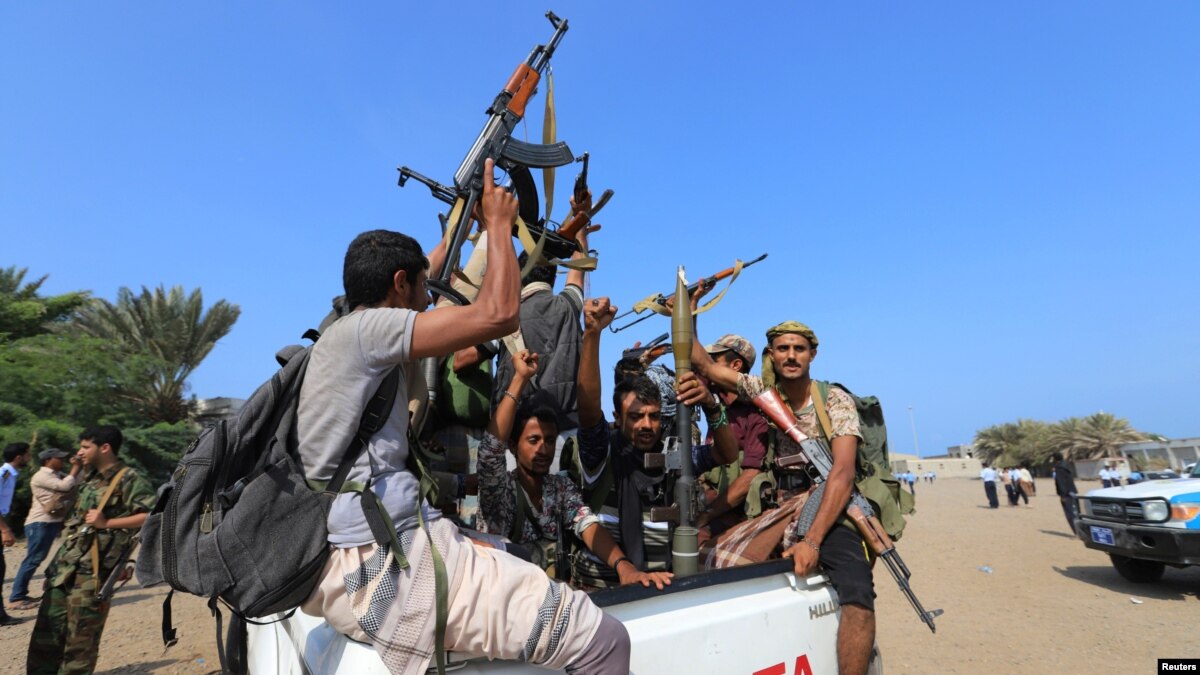
The Saudi-led coalition in Yemen says it is ready to use "calibrated force" to prod Houthi rebels into abiding by the cease-fire in the port city of Hodeida.
"To preserve the cease-fire and any hope for the political process, the U.N. and the international community must press Houthis to stop violations ... and move forward on withdrawal from Hodeida as agreed," UAE Foreign Minister Anwar Gargash said Wednesday.
The UAE is a key member of the coalition supporting the Yemeni government in trying to force the Iranian-backed Houthis out of the country.
The rebels and Yemeni officials reached a cease-fire deal for Hodeida in December. The rebel-controlled port is the major entry point for food and other humanitarian relief for suffering Yemeni civilians.
All sides promised to withdraw their forces from the city but have been slow to implement the deal. There have been occasional flare-ups of gunfire.
But the rebels and coalition have started carrying out the prisoner exchange that was part of the cease-fire deal.
U.N. Special Envoy Martin Griffiths, who has been working to keep the cease-fire from falling apart, said he welcomes the unconditional release of prisoners and said he hopes to see more humanitarian gestures.
The Houthis seized the Yemeni capital, Sana'a, in 2014, sending the government into temporary exile in Saudi Arabia. It has since returned to set up shop in the southern city of Aden.
Saudi-led coalition airstrikes made the fighting worse and deepened what U.N. officials call the world's worst humanitarian disaster, with nearly 80 percent of Yemeni civilians lacking enough food, fuel and medicine.
Polls: Israeli Ex-General Gains Ground After Campaign Launch
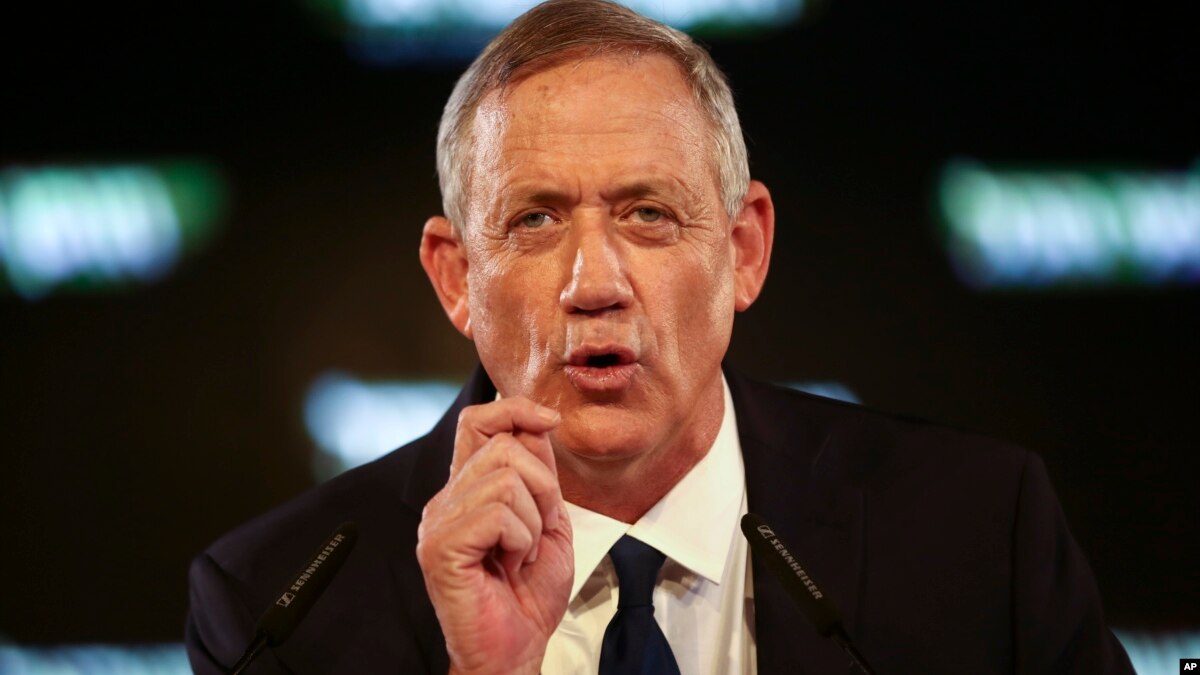
Prime Minister Benjamin Netanyahu's toughest rival in Israel's April election, a popular former general, made strong gains on Wednesday in the first opinion polls released after his inaugural campaign speech.
But in a multi-party contest whose ultimate winner has always been determined in Israel by post-election wheeling and dealing, Netanyahu is still on course to build a right-wing coalition in parliament similar to the one he now heads, according to commentary accompanying the surveys.
In a long-awaited speech on Tuesday that broke his silence since joining the campaign, former military chief Benny Gantz criticized what he termed a leadership detached from the people and too concerned with hanging onto power.
Four opinion polls on Israeli TV and news websites on Wednesday showed popularity spike for Gantz's new middle-of-the-road Resilience party at the expense of center-left rivals. But it was still running second to Netanyahu's right-wing Likud.
The surveys gave Gantz's party between 19 and 24 seats in the 120-member parliament - up from around 12 to 15 in previous polls - compared with 29 to 31 for Likud, about the same number as in earlier forecasts.
Political commentators have described Gantz as the first candidate in years that voters could regard as a match for Netanyahu, now in his fourth term as prime minister, in terms of security expertise.
In his speech on Tuesday, Gantz highlighted his military record and spoke mainly in generalities about policies he intends to pursue, pledging to be tough on security while striving to pursue peace.
Yaron Dekel, a political analyst, said on Israel's Channel 13 that if Gantz maintains his momentum and Likud's polling numbers drop to around 28 seats, Israelis will be able to say, "Hang on, here's a fight we've never seen before.'" Much could depend, commentators said, on whether Gantz and center-left parties can agree on an alliance and subsequently attract enough voter support to form a parliamentary bloc larger than a Likud-led coalition.
Netanyahu's legal troubles are also a wildcard: Israel's attorney general is presently weighing whether to charge him in three corruption cases, pending pre-trial hearings. His decision is widely seen as likely to be announced before balloting on April 9.
Netanyahu has denied any wrongdoing.
Even if Likud comes out on top in the voting, some political commentators said, potential coalition members might balk at partnering with a prime minister facing a criminal trial.
US-Born Iranian Newscaster Arrives Back in Iran
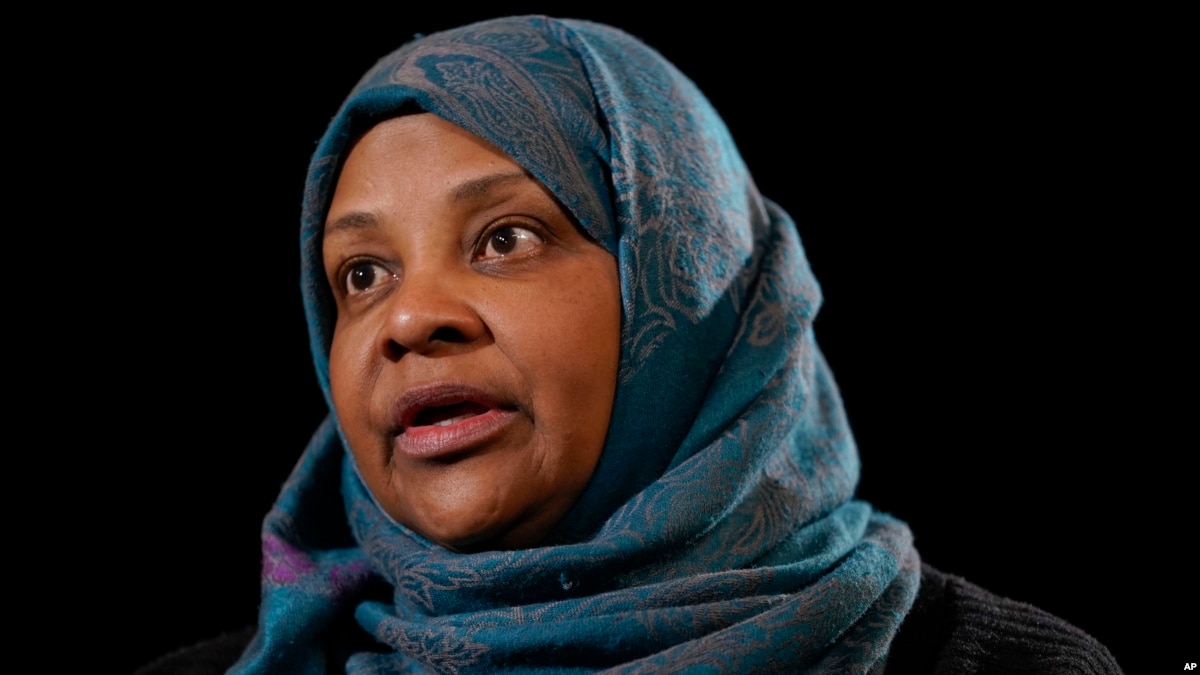
An American-born Iranian television anchorwoman who was detained by the FBI and held as a material witness in a U.S. case, has returned to Iran.
The Wednesday report by state-run English-language channel Press TV says Marzieh Hashemi has arrived in Iran's capital Tehran.
She was welcomed by her colleagues in a special ceremony upon her arrival at Imam Khomeini International Airport, according to the report.
The 59-year-old Muslim convert, who has lived in Iran for years, was detained by the FBI at St. Louis International Airport in Missouri on Jan. 13 while in the U.S. to visit her ill brother and other family members.
7 European Nations End Latest Mediterranean Standoff Over Migrants
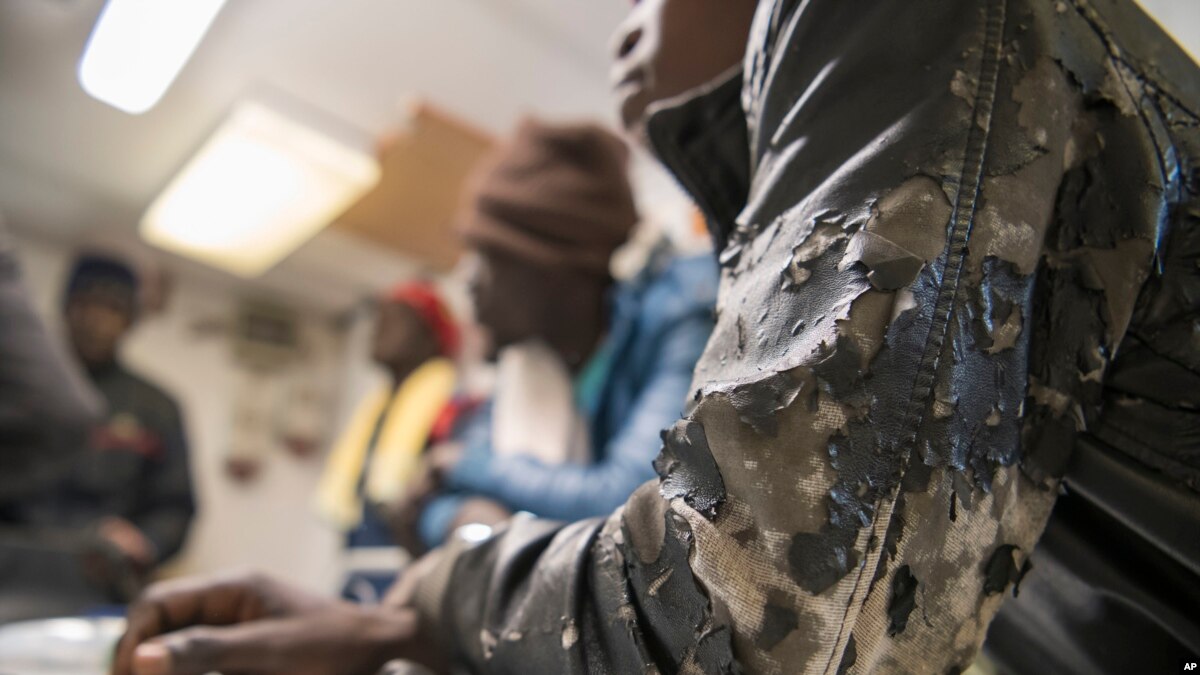
After spending close to two weeks at sea because no country would allow them to disembark, Italian Prime Minister Giuseppe Conte said 47 migrants on the Dutch-flagged Sea-Watch 3 finally would come off that vessel. Europe had been arguing over the fate of the migrants and Italy agreed to let them disembark only after a half-dozen countries came forward to take them in.
Prime Minister Giuseppe Conte ended the latest migrant standoff on Wednesday, announcing the 47 migrants would soon disembark. The migrants had been stuck on the vessel since their rescue off the coast of Libya January 19.
The Sea-Watch 3 rescue vessel has been moored off southern Sicily since Friday.
Europe has been struggling with how to deal with the migrants’ respective arrivals since Italy’s populist government, which came to power last March, announced it would close its ports to humanitarian vessels.
It was the second time in a month the Sea-Watch 3 had been stranded at sea with rescued migrants and no safe port that would allow it to dock.
Speaking in Milan on Wednesday, Prime Minister Conte said Luxembourg came forward as the latest country to answer Italy's request for assistance.
The prime minister added that Luxembourg joined Germany, France, Portugal, Romania and Malta in agreeing to take some of the migrants from the Sea-Watch 3 ship operated by a German aid group. The migrants are expected to disembark in the coming hours.
Deputy Prime Minister and Interior Minister Matteo Salvini said, “Mission accomplished! Once again thanks to the commitment of the Italian government and the determination of our Interior Ministry, Europe has been forced to intervene and take on its responsibilities.” Salvini added, “On the basis of the documentation gathered, an investigation should be opened to shed light on the conduct of the NGO.”
Steffen Seibert, spokesman for German Chancellor Angela Merkel, said Germany has agreed to accept some of the migrants, declaring it is clear “a common and lasting solution is needed in Europe” to the issue.
The U.N. refugee agency says on average, six people a day lost their lives attempting to reach Europe by way of the Mediterranean last year.
Egypt Sentences Senior Official to 12 Years Over Corruption
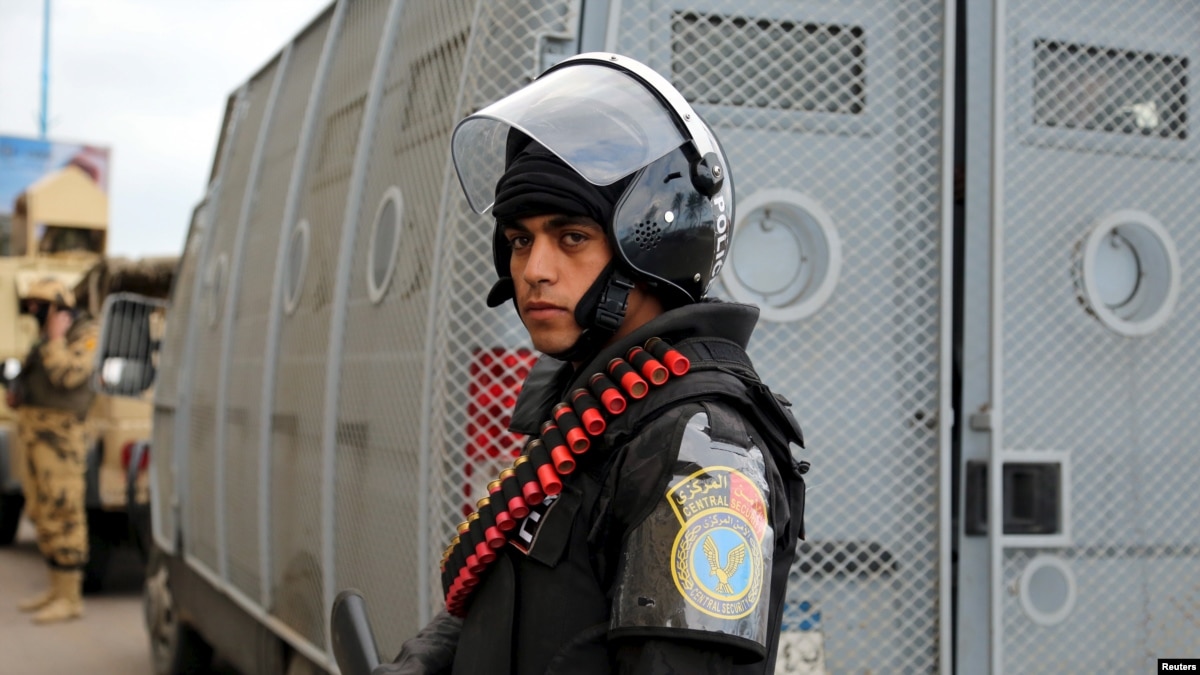
An Egyptian court has sentenced the deputy governor of the country's second-largest city to 12 years in prison on corruption charges.
The Cairo criminal court also sentenced Souad el-Kholy, deputy governor of the Mediterranean city of Alexandria, to a one-year suspended sentence for bribery, profiteering and squandering public funds on Wednesday. The court acquitted five local businessmen in the same case.
El-Kholy can appeal the verdict against her.
She became Alexandria's deputy governor in 2015 and was arrested two years later, in October 2017, in a case linked to illegal seizures of state land, illegal construction and building violations. She is the most senior female official to be arrested on corruption charges.
Alexandria is notorious for illegal construction and demolition of historical buildings to make way for high-rise apartment towers.
Turkey: US Consulate Translator Convicted of Terror Charge
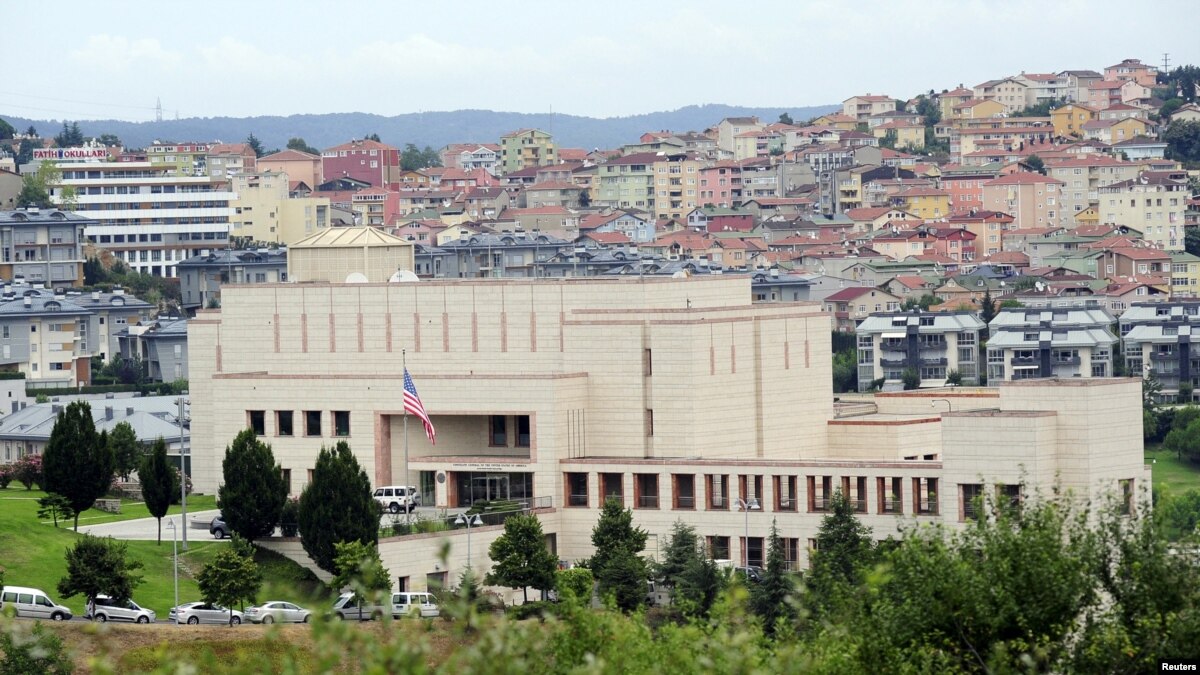
Turkey's official news agency says a Turkish citizen who worked as a translator for the U.S. Consulate in Adana was convicted on terror charges but will be freed from prison.
Anadolu news agency said a Turkish court on Wednesday convicted Hamza Ulucay of “knowingly and willingly aiding an armed terror organization.” The court sentenced Ulucay to 4 years in prison, but released him with credit for the nearly two years he spent in detention.
Ulucay was arrested in February 2017 for alleged links to outlawed Kurdish militants.
The top American diplomat in Ankara, Charge d'Affaires Jeffrey M. Hovenier, attended Wednesday's court hearing along with other U.S. officials.
Two other local consular employees are under investigation in Turkey.
Egypt Arrests Activists After Commemoration of Uprising
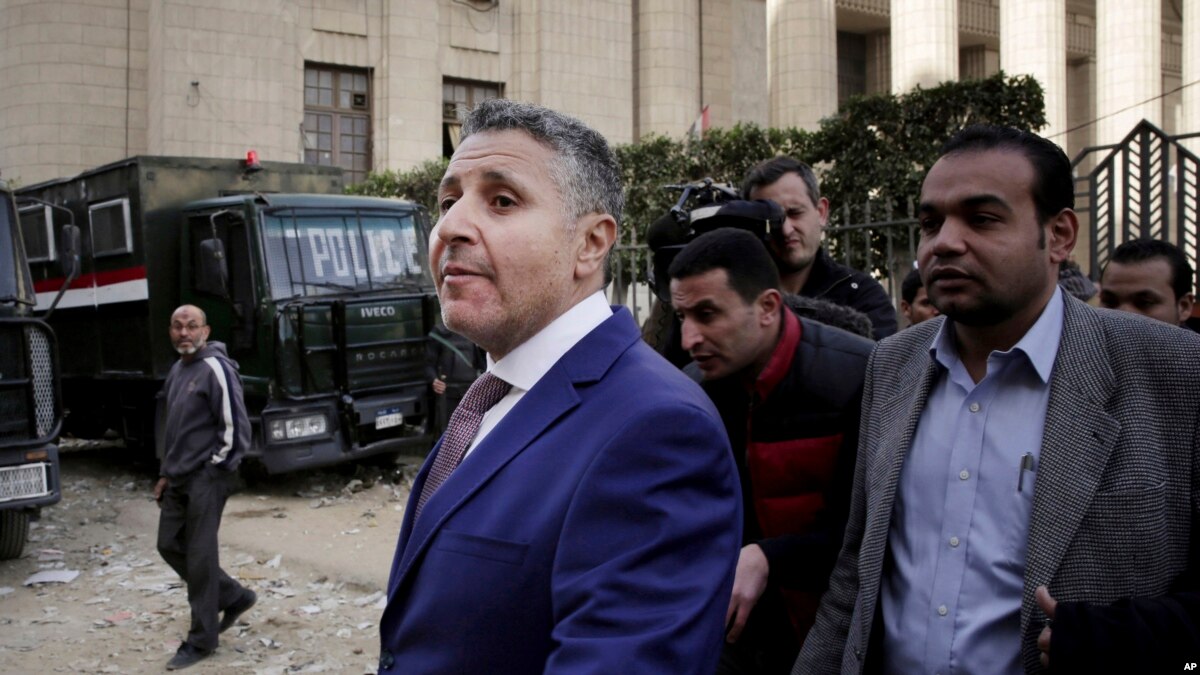
Egypt has rounded up at least six activists in the last couple of days in a wave of arrests coinciding with the anniversary of the 2011 uprising, a rights lawyer said Wednesday.
Authorities have waged a sweeping crackdown on dissent in recent years, reversing freedoms won in the popular uprising that toppled longtime autocrat Hosni Mubarak. Security is especially tight around the anniversary of the Jan. 25 uprising and public commemorations of it are largely banned.
Negad Borai, the lawyer, said that among those arrested in the past two days is Yehia Hussein Abdel Hady, the former spokesman of the Civil Democratic Movement. The coalition of secular and left-leaning political parties had called for a boycott of Egypt’s presidential election last year.
The other five activists were arrested on Monday after they attended a ceremony commemorating the uprising, Borai said.
The five were members of the Karama, or Dignity, party founded by opposition leader Hamdeen Sabahi, the only candidate who ran against President Abdel-Fattah el-Sissi in the 2014 presidential election.
The whereabouts of the six activists are still unknown, Borai said. A spokesman for Egypt’s Interior Ministry, which oversees police, did not respond to phone calls and messages seeking comment.
It is not clear if the activists are among 54 people who authorities said Tuesday were detained for plotting to foment chaos on the anniversary of the uprising.
The Interior Ministry said those individuals, most of them alleged members of the outlawed Muslim Brotherhood group, were arrested over the past weeks in different locations.
The Muslim Brotherhood won a series of elections after the 2011 uprising. Mohamed Morsi, a senior Brotherhood member, was Egypt's first freely elected president in 2012 but was overthrown by the military the following year amid mass protests against his rule.
Authorities have since branded the group a terrorist organization and have arrested thousands of its members, sentencing many of its top leaders, including Morsi, to life sentences or death.
The latest arrests came just two days after French President Emmanuel Macron urged respect for human rights in a meeting with el-Sissi during a state visit to Cairo.
El-Sissi, who led the overthrow of Morsi in 2013, was elected president the following year. He won re-election last year after all serious potential rivals were arrested or pressured into withdrawing from the race.
In recent years authorities have banned all unauthorized protests, blocked hundreds of websites and silenced nearly all independent media.
The government has said such measures are needed to restore stability and combat an insurgency in the northern Sinai Peninsula that has gained strength since 2013.
Israel Leader Scorned for Wooing Holocaust-distorting Allies
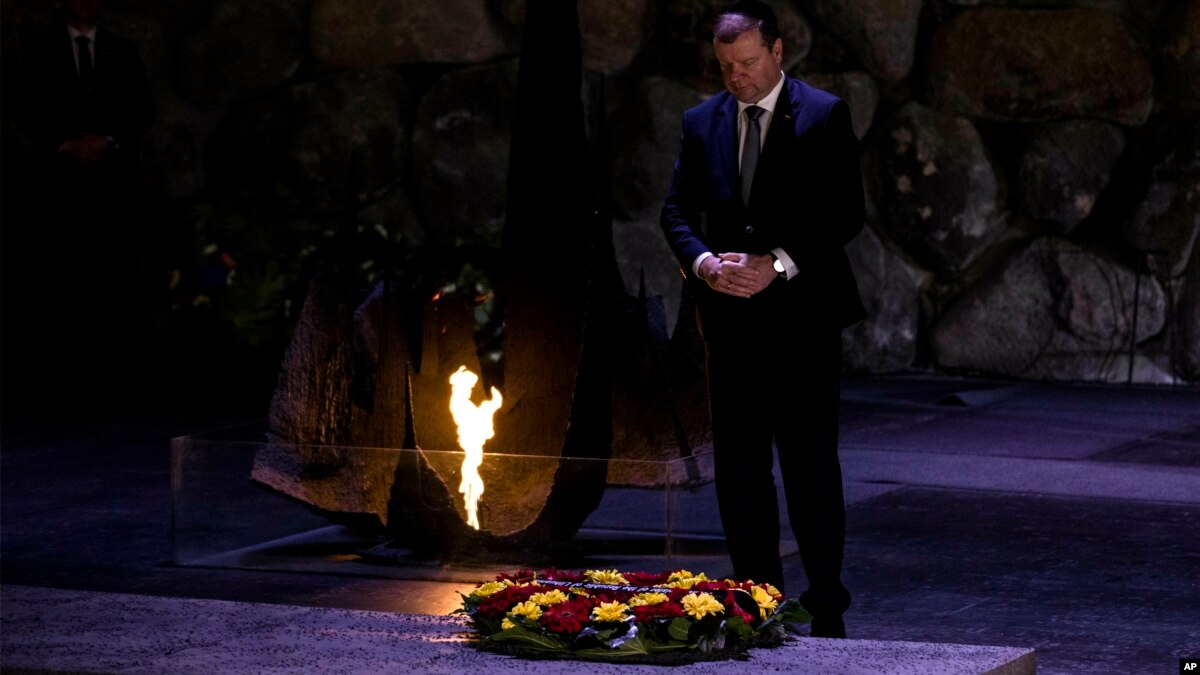
Israeli Prime Minister Benjamin Netanyahu’s warm welcome to Lithuania’s prime minister marks his latest embrace of an eastern European leader who has offered strong political support while promoting a distorted image of the Holocaust.
Lithuania is among a slew of former communist nations swept up in a wave of World War II-era revisionism that seeks to diminish their culpability in the Holocaust while making heroes out of anti-Soviet nationalists involved in the mass killing of Jews. In Israel, established in the wake of the Nazi genocide of 6 million Jews, many say Netanyahu is cynically betraying the victims’ memory.
Lithuania, for instance, has been a leading force behind creating a joint memorial day for all victims of totalitarianism, blurring the distinction between the crimes of the Nazis and the communists who fought them.
It also has pushed for legislation to prohibit the sale of books that “distort Lithuanian history” by citing the rampant, documented collaboration of the local population with Nazis. Most recently it has resisted calls to remove the various plaques commemorating anti-Soviet fighter Jonas Noreika, despite recent revelations by his own granddaughter, Silvia Foti, that he was a fierce anti-Semite who had a role in the murder of thousands of Jews.
Nearly all of Lithuania’s 200,000 Jews were killed in the Holocaust.
When Netanyahu, who has Lithuanian roots, visited Vilnius last year, he praised Prime Minister Saulius Skvernelis for taking “great steps to commemorate the victims of the Holocaust” and for fighting modern-day anti-Semitism.
“It’s unforgivable. Netanyahu is giving them a green light,” said Efraim Zuroff, the chief Nazi-hunter of the Simon Wiesenthal Center. “It’s like praising the Ku Klux Klan for improving racial relations in the South.”
“We have to say the truth. We owe it to the victims,” he added.
In a meeting with Israeli President Reuven Rivlin on Tuesday, Skvernelis said “Lithuania has been learning the lessons of the past” and was “improving the life of the Jewish community and restoring historical sites.”
At Tuesday’s meeting, Netanyahu treaded cautiously. He referred to the “tragedies of the past” but steered clear of any criticism of modern Lithuania, praising the “spirit of friendship” and “a bridge from the past to a future.”
Skvernelis’ visit comes a week after Netanyahu similarly rolled out the red carpet for President Petro Porochenko of Ukraine, whose parliament just designated the birthday of Ukrainian wartime collaborator Stepan Bandera a national holiday. A regional legislature declared 2019 “the year of Stepan Bandera.”
Bandera’s forces fought alongside the Nazis and were implicated in the murder of thousands of Jews. As Porochenko was visiting Israel, another memorial was being erected in Kiev for Symon Petliura, whose troops are linked to pogroms that killed as many as 50,000 Jews after World War I.
Netanyahu’s outreach in eastern Europe is part of his larger strategy of forging alliances to counter the criticism Israel faces in the United Nations and other international forums over its treatment of the Palestinians.
Critics consider it a deal with the devil. They say Netanyahu — who often invokes the Holocaust when inveighing against archrival Iran — turns a blind eye when it comes to like-minded allies.
“It’s a specific maneuver that legitimizes anti-Semitism and borders on Holocaust denial,” said Tamar Zandberg, leader of the dovish Meretz party.
The prime minister’s office did not respond to a request for comment.
Under communist rule, the Holocaust was not seriously dealt with and, upon independence, the newfound eastern and central European nations sought to canonize nationalist icons who resisted the Soviets, while largely ignoring their crimes alongside the Nazis. Domestic academics who have challenged the false narrative have been shamed, and external criticism has often been met with new anti-Semitic outbursts.
For countries like Lithuania and Ukraine, the warm embrace of the Israeli leader provides a strong defense against accusation of anti-Semitism while also strengthening ties with a close U.S. ally.
Netanyahu has also formed a close alliance with Hungarian Prime Minister Viktor Orban, who has lavished praise on Miklos Horthy, Hungary’s World War II-era ruler, who introduced anti-Semitic laws and collaborated with the Nazis. Orban has also employed anti-Semitic tropes against the Jewish Hungarian-American billionaire philanthropist George Soros and backed a state-funded museum that experts say plays down the role of Hungarian collaborators.
Netanyahu also struck a deal with Polish leaders over their country’s controversial Holocaust speech law, which would have criminalized blaming the Polish nation for crimes committed against Jews during World War II.
Israeli Holocaust historians slammed the agreement, which seemed to accept a Polish narrative that they were only victims of the Nazis. Scholars say anti-Semitism was deeply rooted in pre-war Poland and Poles might have either killed or helped Germans kill up to 200,000 Jews.
Still, Netanyahu has invited Orban and Polish Prime Minister Mateusz Morawiecki — who last year equated Polish perpetrators in the Holocaust to supposed “Jewish perpetrators” — to Israel in February for a summit with the leaders of the Czech Republic and Slovakia.
Yair Lapid, leader of the centrist Yesh Atid party and the son of a Holocaust survivor, called on Netanyahu to cancel the meeting, saying one prime minister has “published anti-Semitic content” and another “passed a law desecrating the memory of Holocaust victims.”
In an annual report Sunday, Israel’s Ministry of Diaspora Affairs said 2018 saw a record number of worldwide anti-Semitic attacks, with most carried out by neo-Nazis in Europe and white supremacists.
But at his Cabinet meeting later in the day, Netanyahu singled out “Islamic anti-Semitism and the anti-Semitism of the extreme left, which includes anti-Zionism.”
Israel’s Yad Vashem Holocaust memorial, which hosts all visiting foreign dignitaries, has been thrust into the controversy.
While it says it will never disqualify anyone wishing to visit, Yad Vashem insists it will “forcefully” address any denial or distortion. Yad Vashem said the Lithuanian leader received a comprehensive explanation of the Holocaust, including details about “the murder of Jews of Lithuania by the Nazis and their Lithuanian collaborators.”
Read More Israel Leader Scorned for Wooing Holocaust-distorting Allies : http://bit.ly/2BdHZYvTaliban Says It is Working With US to Finalize Troop Withdrawal Plans
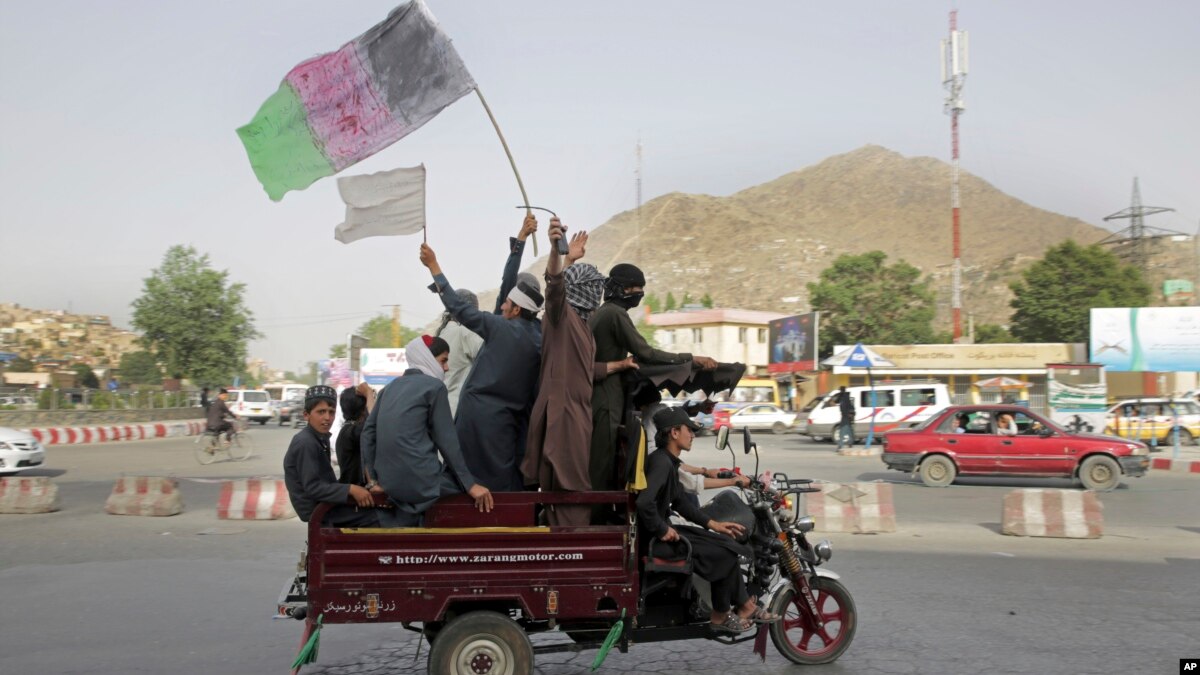
The United States and the Taliban have both agreed to establish two “technical teams” to determine mechanisms for the withdrawal of all American and NATO troops from Afghanistan and for preventing terrorists from using Afghan soil against America and its allies.
Chief Taliban negotiator, Mullah Abbas Stanikzai, has revealed the details after nearly a week of marathon discussions which concluded on Saturday in Qatar with U.S. special representative for Afghanistan reconciliation, Zalmay Khalilzad.
“The two technical teams will prepare proposals and take decisions and bring them to the table in the next meeting in Doha set for February 25,” Stanikzai told a pro-Taliban media outlet. Taliban spokesman Zabihullah Mujahid released the video of the interview Wednesday
He added that a larger meeting would then be arranged, with major powers, the United Nations and representatives of Islamic countries in attendance as “guarantors” where assurances will be given that all foreign troops will leave Afghanistan.
The U.S. side will also announce a timeline for the troop withdrawal because “ these troops cannot leave at once, in a day or in a week. It will require time,” Stanikzai acknowledged, adding these details will also be worked out by the technical teams.
There was no immediate reaction from the Afghan government or U.S. officials to the assertions made by the Taliban chief negotiator.
Negotiations on both sides
On Monday, Khalilzad discussed some details of his talks with the Taliban, saying that both sides have agreed “in principle” to a framework that would bind the insurgents to prevent transnational terrorist outfits, including al-Qaida and Islamic State, from using Afghan soil for attacks against America and its allies , as well as neighbors of Afghanistan.
In exchange the U.S. will withdraw its troops from the country but would require the Taliban to observe a ceasefire and open dialogue with the Afghan government, the U.S. chief negotiator noted.
Some have criticized Washington for reaching the framework deal in haste. Former U.S. Ambassador to Kabul Ryan Crocker slammed the deal with the Taliban as a “surrender.”
"This current process bears an unfortunate resemblance to the Paris peace talks during the Vietnam War. Then, as now, it was clear that by going to the table we were surrendering; we were just negotiating the terms of our surrender. The Taliban will offer any number of commitments, knowing that when we are gone and the Taliban is back, we will have no means of enforcing any of them," Crocker wrote in an oped in the Washington Post.
In his interview Wednesday, Stanikzai said Americans have assured the Taliban they do not want their soldiers to stay in Afghanistan nor do they intend to maintain permeant bases in the country.
“Islamic Emirate (Taliban) has categorically told them (Americans) all foreign soldiers whether they are here for combat or training purposes will have to exit because our jihad (holy war) will continue till the last foreign soldier is present in Afghanistan,” Stanikzai asserted.
Opposition to a ceasefire
The senior insurgent official said that during the talks in Doha, Taliban negotiators rejected American demands for the Taliban to observe a complete ceasefire during withdrawal of foreign troops and engage in direct talks with the Afghan government.
“It is impossible for us to engage in direct talks with the Kabul administration until all U.S. and NATO troops pull out from Afghanistan. We told them (U.S.) that the Kabul government is not legitimate and is the product of American military pressure. It is not an elected government so it cannot represent Afghans and engaging with them would be a waste of time,” Stanikzai insisted.
Afghanistan currently has no governance system, no state institution, no police, no army, he asserted and added whatever is there is under the American influence. “We will build the institutions on the basis of Islamic laws and the fundamental constitution will be developed according to Islamic Sharia,” Stanikzai said when asked.whether the existing governing setup in the country would be acceptable for the Taliban.
He insisted the Taliban does not want to seize power but it wants a government in Kabul that is inclusive and all Afghans have a share in it.
“We will, inshallah (God willing), establish a government in Afghanistan which will be acceptable to the international community and will maintain good ties with neighboring countries. We have also told Americans we (the Taliban) don’t want the U.S. military to leave Afghanistan the way Russians left. We have told them that after ending your military intervention, we will welcome U.S. engineers, doctors and others if they want to come back for reconstruction of Afghanistan. And they have promised to do so, saying the U.S. wants to maintain friendly ties with Afghanistan and would participate in reconstruction efforts."
Stanikzai acknowledged that the two sides made progress on the two key issues of troop withdrawal and preventing use of Afghan soil against anyone and sounded upbeat about further progress when the two negotiating teams meet again next month. He admitted though, the ceasefire and talks with a Kabul government envoy remain the sticking points.
“The (Afghan) army that they call it is raiding homes of their own countrymen and killing them at the behest of the enemy. These forces will simply vanish when their financial sources dry up with the departure of Americans, and the fate of the (Afghan) government wouldn’t be different ,” he said. Afghanistan does not need to spend billions of dollars to maintain such a big army once peace is restored to the country, Stanikzai went on to assert.
Read More Taliban Says It is Working With US to Finalize Troop Withdrawal Plans : http://bit.ly/2Rr6nezTuesday, January 29, 2019
US Lawmakers Again Seek to End US Support for Saudis in Yemen
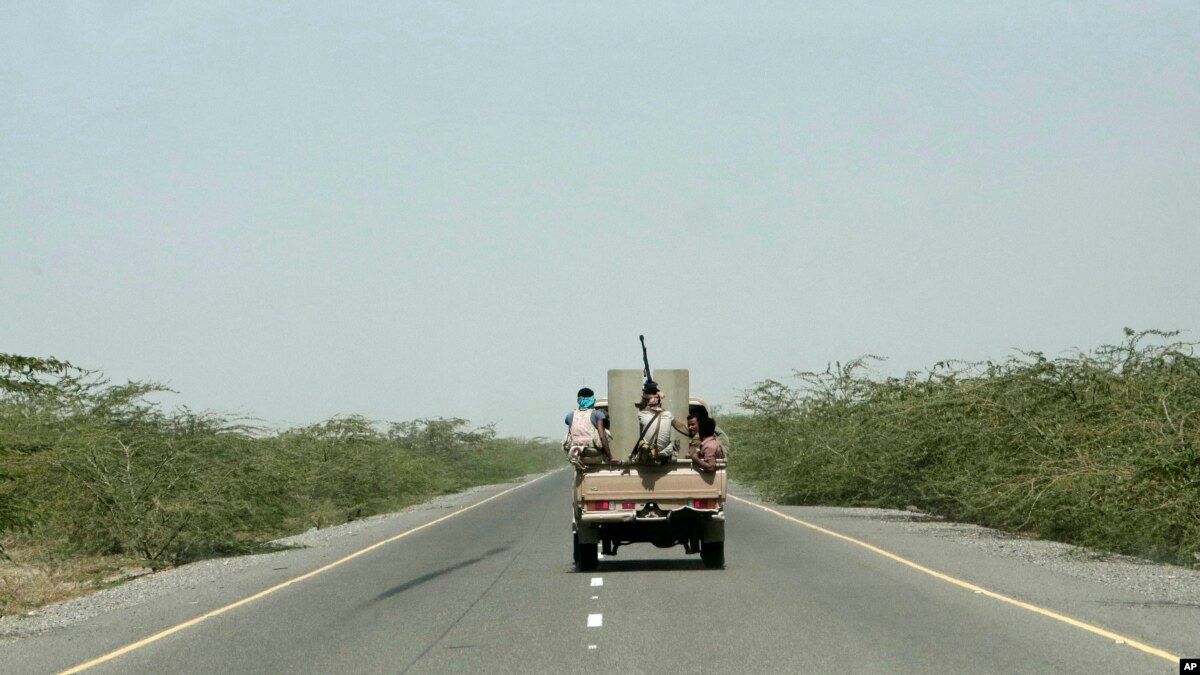
Republican and Democratic U.S. lawmakers will try again to pass a resolution ending U.S. support for the Saudi-led coalition in Yemen, with a greater chance of success than when a similar measure passed the Senate last month.
Republican Senator Mike Lee, Democratic Senator Chris Murphy and Independent Senator Bernie Sanders, who caucuses with the Democrats, as well as Democratic Representatives Ro Khanna and Mark Pocan, planned a news conference for Wednesday to introduce the legislation.
The Senate passed a Yemen-related war powers resolution by a 56-41 vote in December, as seven Republicans joined Democrats to vote for what was considered a rebuke of Republican President Donald Trump amid anger with Saudi Arabia not just over civilian deaths in Yemen, but also the killing of Saudi journalist Jamal Khashoggi at a Saudi consulate in Turkey. Trump had promised a veto.
It was the first time either chamber of Congress had backed a resolution to withdraw U.S. forces from a military engagement under the War Powers Act. That law, passed in 1973, limits the president's ability to commit U.S. forces to potential hostilities without congressional approval.
However, that measure never went further because the Republicans who then controlled the House of Representatives did not allow a vote in that chamber before the end of the year.
Democrats now have a House majority, but Trump's fellow Republicans have increased their edge in the Senate by two seats to hold a 53-47 margin. It would take a two-thirds majority in both houses of Congress to overcome a Trump veto.
Opponents of the resolution are reluctant to take any action to disrupt the strategic U.S. relationship with Saudi Arabia, seen as an essential counterweight in the Middle East to Iran, arch-enemy of close U.S. ally Israel.
Climate Change Link to Arab Spring' Mass Migration
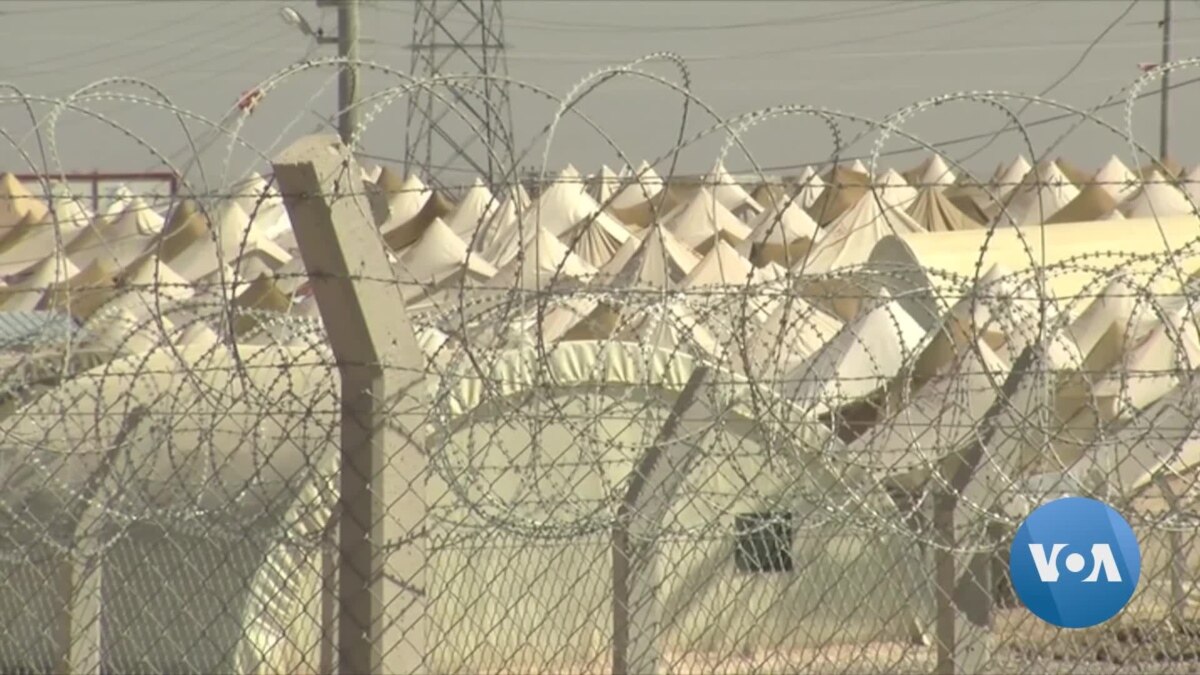
The mass migration flows that followed the Arab Spring in North Africa and the Middle East were partly caused by climate change, according to new research. Scientists from the International Institute for Applied Systems Analysis in Austria say that in certain circumstances, climate conditions can lead to conflict, which drives increased migration. Henry Ridgwell reports.
Read More Climate Change Link to Arab Spring' Mass Migration : http://bit.ly/2Se3ge9Senate Leader Wants US Troops to Stay in Syria, Afghanistan
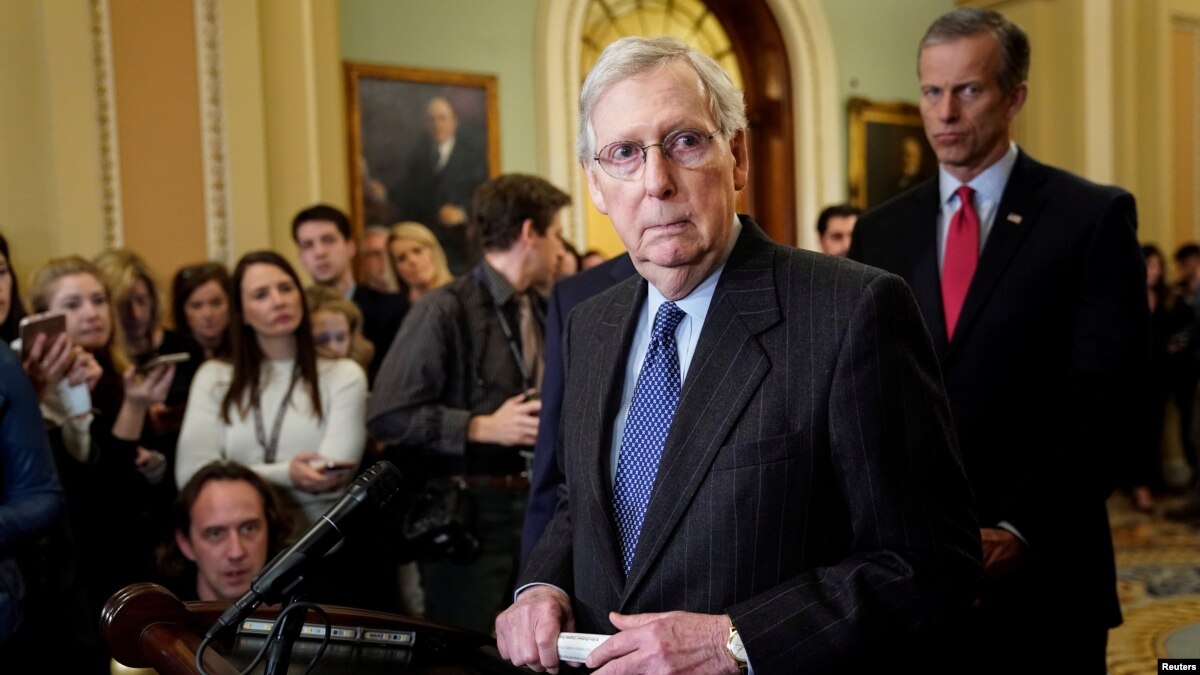
The Republican leader of the U.S. Senate offered legislation on Tuesday urging the United States to keep troops in Syria and Afghanistan, as President Donald Trump's administration moves toward withdrawals of American forces after years overseas.
Saying that Islamic militant groups in the two countries continue to pose a "serious threat" to the United States, Senate Majority Leader Mitch McConnell said he had introduced an amendment to a broader Middle East Security bill urging a "continued commitment" until al-Qaida, Islamic State and other groups are defeated.
"We're not the world's policemen, but we are the leader of the free world, and it's incumbent upon the United States to lead, to maintain a global coalition against terror and to stand with our partners," McConnell said in a speech in the Senate.
The measure would be an amendment to a broader Middle East security bill being debated in the Senate. That bill, which includes fresh sanctions on Syria and a measure combating the Boycott, Divest and Sanctions (BDS) movement against Israel, advanced in a procedural vote on Monday.
There was no immediate word on when the Senate might vote on whether to pass the bill, including the amendment. To become law, it would also have to pass the Democratic-controlled House of Representatives and be signed by Trump, or overcome a Trump veto if he will not sign.
Trump's administration has announced plans to bring all U.S. forces home from Syria, saying that the Islamic State militant group had been defeated.
Separately on Monday, Trump's director of national intelligence, Dan Coats, told a Senate hearing on worldwide risks that Islamic State remains a threat.
On Monday, a U.S. special envoy said the United States and the Taliban have sketched the outlines for an eventual peace accord to end 17 years of war in Afghanistan. However, there was no sign the group had accepted key U.S. demands such as committing to a ceasefire before a withdrawal of U.S. troops.
Hariri: Decisive Week Ahead for Lebanese Government Formation
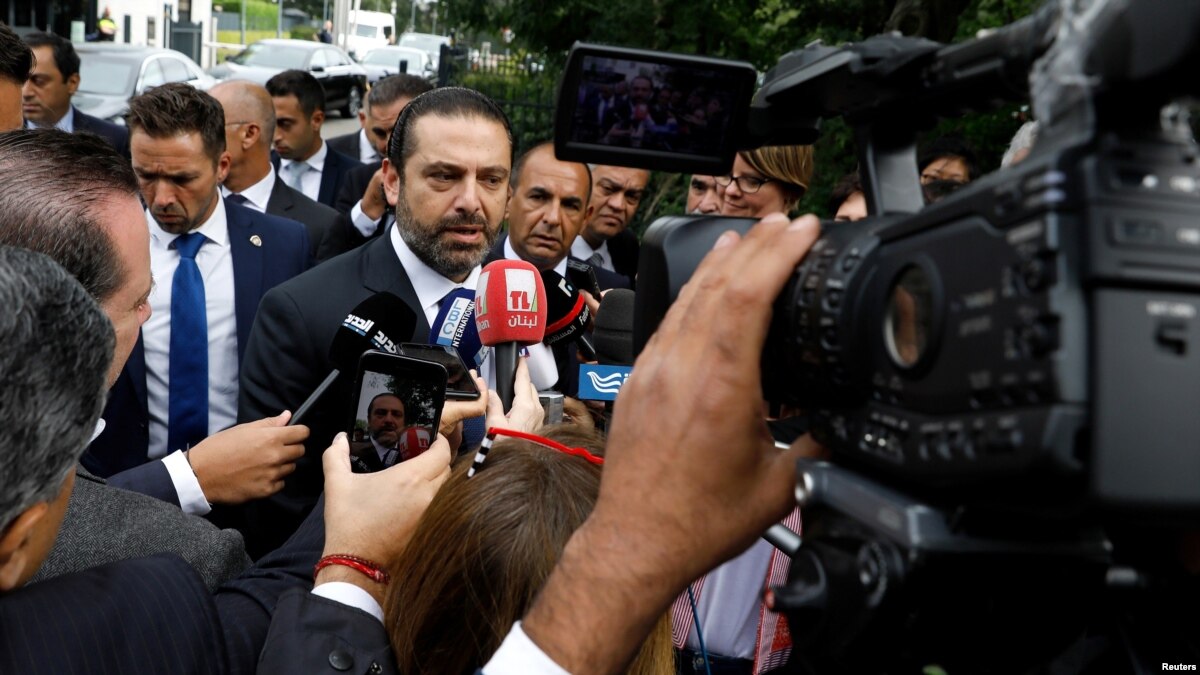
This week will be decisive in efforts to form a government in Lebanon, representing a last chance to break the deadlock, Prime Minister-designate Saad al-Hariri said Tuesday.
The formation of a government nine months after an election is seen as a vital first step toward boosting confidence in the economy as political leaders warn of crisis.
The International Monetary Fund has called for urgent fiscal reforms to address the country's large public debt, equivalent to about 150 percent of GDP.
"Matters are positive and will become clear within two days. ... This week is decisive, positively or negatively," Hariri was cited as saying in a statement from his office, adding that he was "cautiously optimistic."
The situation could not go on like this, and this week represented "a last chance to settle things and to launch the government formation," Hariri was quoted as saying.
Members of parliament from President Michel Aoun's party, the Free Patriotic Movement, said in a statement the government could be formed this week if concessions were made by all sides.
If not, then "next week we will have something else to say ... because then it will be clear that is an intention to obstruct the birth of the government," the FPM's Cesar Abi Khalil said in a statement after a meeting of the MPs.
On Saturday, the leader of Lebanon's powerful Iran-backed Hezbollah movement said "extraordinary efforts" were being made to form the government, but two obstacles remained — how to include a group of six Sunni lawmakers in the cabinet and the distribution of government portfolios among the political parties.
Credit ratings agency Moody's last week downgraded Lebanon's sovereign debt, citing the uncertain movement toward forming a government, and Lebanese bonds have suffered in recent weeks.
Lebanon is one of the world's most indebted countries and its finance minister has said it is in an economic crisis that has started to turn into a financial one, and hopes it will not become a monetary one.
Egypt Arrests 54 Suspected of Planning Violence on Uprising Anniversary
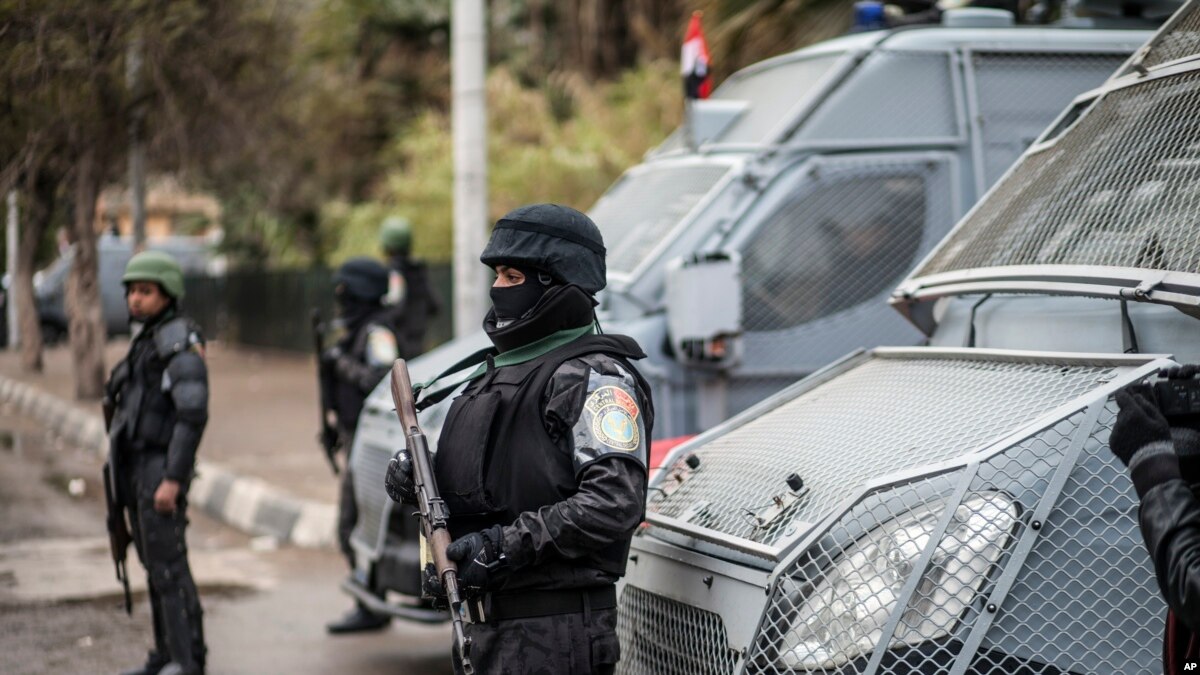
Egyptian security forces have arrested 54 people, including suspected members of the Muslim Brotherhood, for planning to hold protests and commit violence on the anniversary of the 2011 uprising, the interior ministry said on Tuesday.
The ministry said in a statement that the group was directed by a Muslim Brotherhood leader based in Turkey and that money and sabotage equipment were found in its possession.
“Information has become available... that escaped leaders of the (Muslim Brotherhood) were implementing a plot to create a state of chaos in the country during the months of January and February, to coincide with the anniversary of the 25 January revolution,” the statement said.
The 2011 popular uprising overthrew longserving autocrat Hosni Mubarak. A year later, the Muslim Brotherhood came to power in Egypt’s first modern free election, but in 2013 the army removed the Brotherhood. The movement has since been banned and its leaders arrested.
The Egyptian authorities link the Brotherhood to an Islamist insurgency in the Sinai peninsula and have repeatedly blamed it for attacks. The Brotherhood denies any connection to militants and says its political aims are peaceful.
Tuesday’s statement identified the Brotherhood figure behind the planned attacks as Yasser al-Omda and said he had set up an organisation called Allahuma Thawra. Members of the group were planning to “cut roads, disrupt traffic, and try to spread chaos and terrify citizens”, it added.
The statement did not identify any of those arrested, but said legal measures were being taken against them in coordination with the state security prosecutor.
UN Rights Envoy at Saudi Consulate in Istanbul for Khashoggi
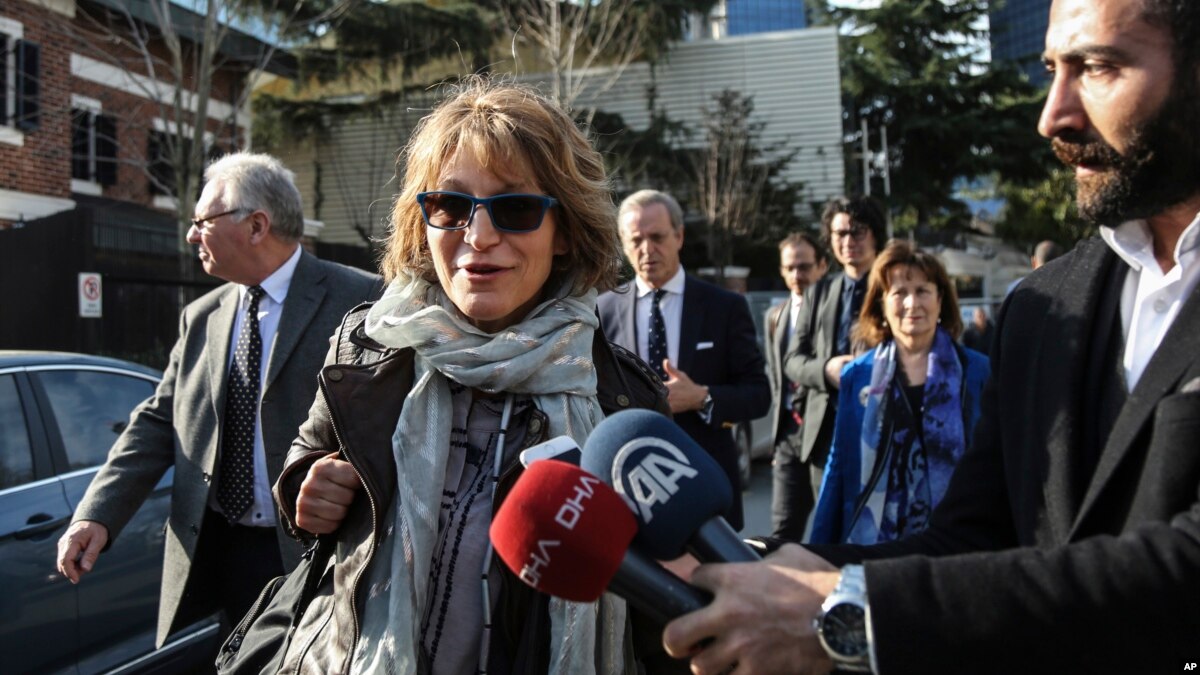
A United Nations human rights expert visited the vicinity of the Saudi Consulate in Istanbul Tuesday as part of an investigation into the killing of Saudi journalist Jamal Khashoggi. She has yet to be allowed to enter the premises.
Special Rapporteur Agnes Callamard and her team of experts said they were waiting for permission from Saudi officials to go to the consulate and meet with Saudi authorities in Istanbul.
“We are respectfully calling on the authorities to give us access at some stage,” she said with regard to her weeklong visit to Turkey.
She said their request to enter the building had come “quite late” and that as a result “we need to give them a bit more time to process our request.”
Khashoggi, a Washington Post columnist who wrote critically about Saudi Crown Prince Mohammed bin Salman, entered the Saudi Consulate in Istanbul on Oct. 2 to obtain documents for his upcoming wedding. He was killed in what Turkish and U.S. officials have described as an elaborate plot.
Also Tuesday, Callamard met with Istanbul's Chief Prosecutor Irfan Fidan who is heading the investigation. The team met with the country's foreign and justice ministers Monday.
Turkish officials have been frustrated over what they say is a lack of cooperation by Riyadh and have called for an international inquiry.
In a tweet, the Turkish president's communications director, Fahrettin Altun, welcomed the visit: “We still do not know where Khashoggi's body is, who ordered the hit and who the `local collaborator' was.”
After denying Khashoggi was killed in the consulate for several weeks, Saudi Arabia indicted 11 people in the killing, including members from the crown prince's entourage, and is seeking the death penalty against five of them.
Turkey says Saudi Arabia must reveal the identity of a person who is thought to have disposed of the journalist's body and hold all involved accountable.
The expert on extrajudicial, summary or arbitrary killing said she would present her report in June to the U.N.'s Human Rights Council and the report would be made public ahead of the meeting.
Palestinian Government Submits Resignation
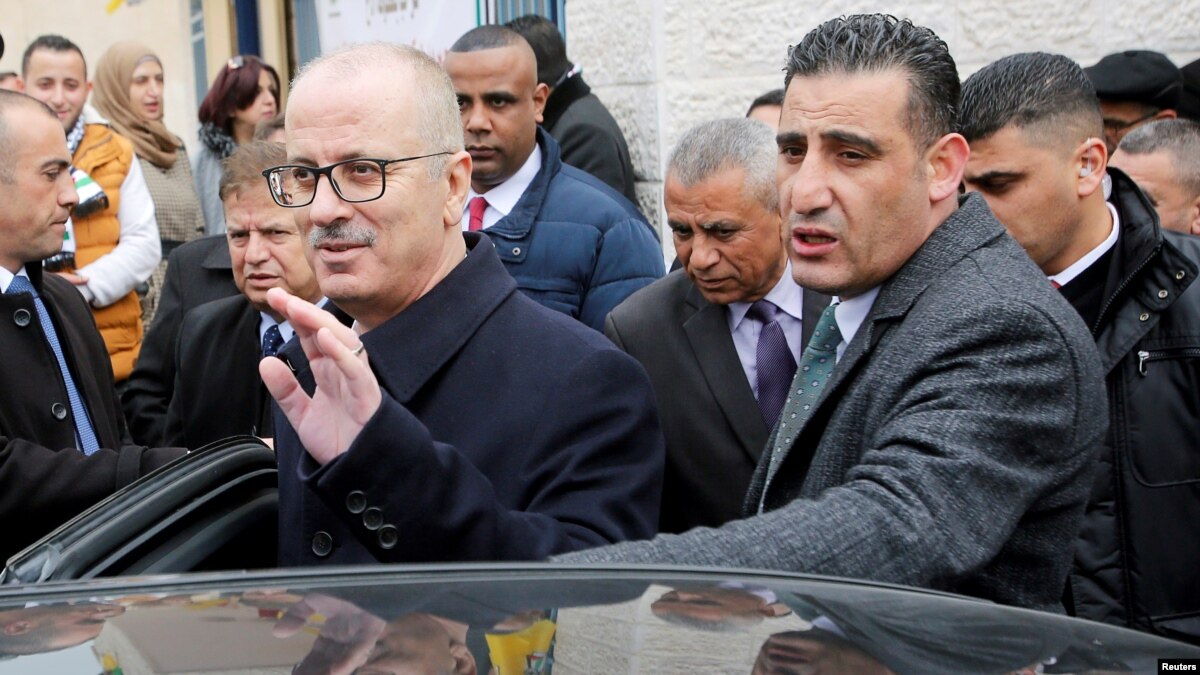
Palestinian Prime Minister Rami Hamdallah's government submitted its resignation Tuesday to President Mahmoud Abbas.
A Cabinet statement said the members would continue serving until a new government is in place.
The move comes two days after the president's Fatah faction recommended the government be replaced.
Hamas, which governs the Gaza Strip, rejected the resignation, saying Abbas was trying to exclude it from Palestinian politics.
Hamas and the Palestinian Authority signed a reconciliation agreement two years ago, but continuing disputes between the two groups have prevented its implementation.
Monday, January 28, 2019
Britain-based Transport Union Urges Iran to Free Detained Labor Activists
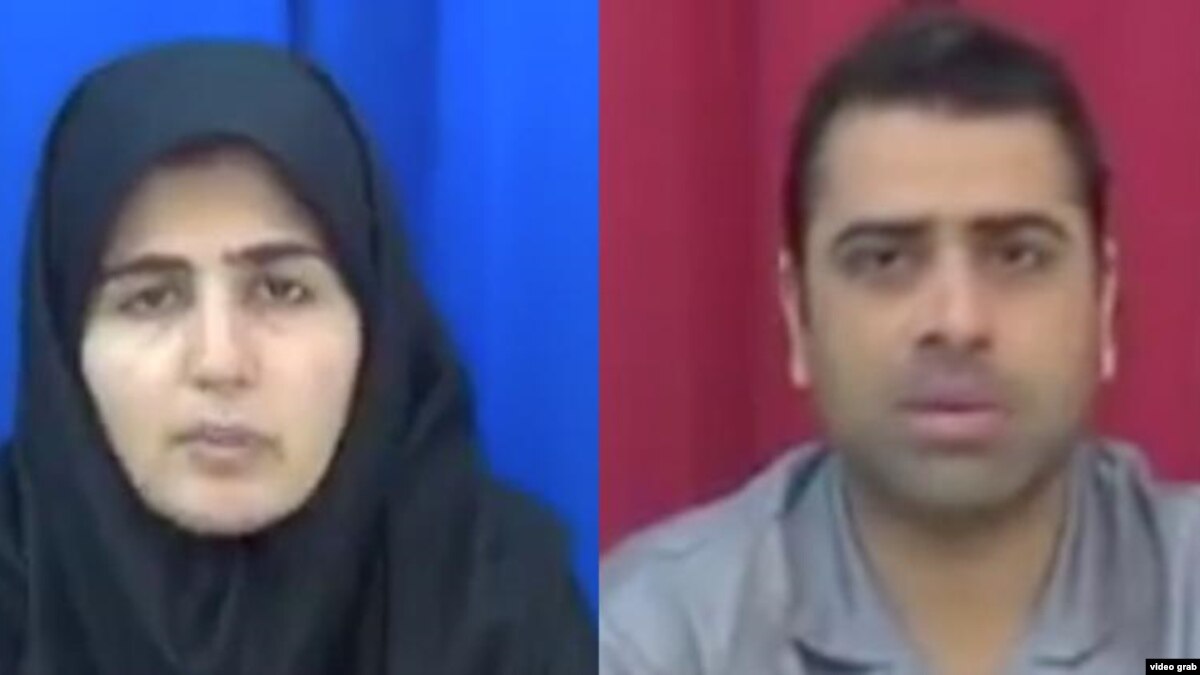
A major international labor union has called on Iran to immediately release several labor activists whom it says appear to have been tortured in custody late last year.
The London-based International Transport Workers' Federation made the appeal in a letter addressed to Iranian President Hassan Rouhani, shared with VOA Persian on Monday.
In the letter dated Jan. 25, ITF General Secretary Stephen Cotton said there was "credible evidence" that confessions by several labor activists in a recently-broadcasted state television program were obtained through threats, beatings and torture.
"Such violations of basic human rights must cease immediately," Cotton wrote to Rouhani. "I call on you both to stop such torture, and to immediately release these detainees."
There was no public response from Rouhani to the letter by late Monday. ITF represents 20 million workers in 140 countries.
The state TV documentary Tarahi Soukhteh (A Burnt Plot), broadcast Jan. 19, accused labor activists involved in recent protests at the Haft Tapeh sugar cane plantation in southwestern Iran of having ties to the United States, Israel and an exiled Iranian Marxist group. The program included confessions by activists Esmail Bakhshi and Sepideh Gholian, who were arrested Nov. 18 for joining Haft Tapeh workers in daily peaceful protests that began Nov. 5 in the town of Shush.
The striking workers had been demanding months of unpaid wages and the removal of private owners, whom they accuse of mismanaging and abandoning the sugar cane complex, founded in the 1950s.
After being released on bail in mid-December, Bakhshi and Gholian declared they had been beaten during their several weeks in detention, a period in which their televised confessions were recorded. Bakhshi made the accusation in a Jan. 4 Instagram post and Gholian backed him up in a Jan. 9 Twitter message saying she had seen him being beaten. In a video broadcast Jan. 21 by BBC Persian, Gholian said she also had been beaten. Authorities re-arrested both activists Jan. 20.
Iranian officials have denied the torture allegations. Speaking to reporters Jan. 14, Iranian prosecutor general Hojatoleslam Montazeri accused Bakhshi of "pursuing political goals."
In a Jan. 24 statement, New York-based group Human Rights Watch said Iran's broadcast of what it termed "forced confessions" by Bakhshi and Gholian "only raises more concerns about torture and mistreatment" of activists in Iranian detention.
The Iranian state TV program also accused the Syndicate of Workers of Tehran and Suburbs Bus Company (SWTSBC) of being part of a plot behind the recent Haft Tapeh strike. In his letter to Rouhani, ITF leader Cotton said the accusation is incorrect and expressed "extreme concern" for all members of SWTSBC, also known as the Vahed Syndicate.
"We urge you to make immediate assurances as to their ongoing liberty and safety and look forward to receiving said assurances from you," Cotton wrote.
SWTSBC has expressed solidarity with Iranians protesting poor labor conditions in various industries around the country in the past, including the workers at the Haft Tapeh plantation.
This article originated in VOA's Persian Service.
Outrage Follows as UAE Gives All Its 'Gender Balance' Awards to Men
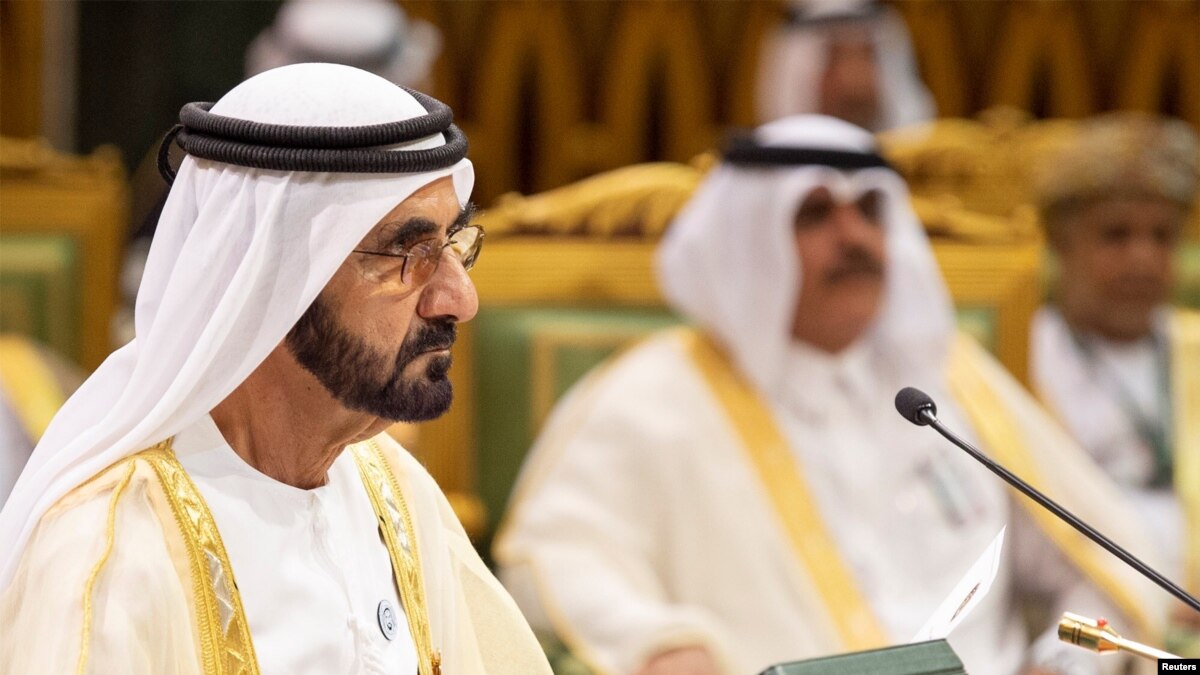
The United Arab Emirates vice president boasted of the country's "significant progress" on gender equality as he handed out awards for promoting equal opportunity. The only trouble was, all of them went to men.
Social media users were quick to mock after Sheikh Mohammed bin Rashid al-Maktoum, the ruler of Dubai and vice president and prime minister of the UAE, tweeted the awards announcement late Sunday with a series of pictures of men.
"Great to see Dubai promoting and rewarding the promotion of gender balance, but there is something missing in these photos ... cannot put my finger on it ...." posted one on Twitter.
"Sorry which genders are they balancing? We see only one," posted another.
The Dubai government media office and the UAE government did not immediately respond to a request for comment.
The World Economic Forum ranked the UAE 121st out of 149 countries by gender equality in education, health, and participation in politics and the economy in a 2018 report.
Upcoming council change
Last December, the UAE decided that women should make up half its semi-elected advisory body when it is renewed this year.
This will increase the number of women on the UAE council — which expresses opinion about public issues including bills and government budgets, but has no role in forming or dismissing cabinets or ministers — from nine to 20.
Critics say the UAE's laws are still highly discriminatory.
Marital rape is not a crime, while domestic violence is permitted as long as "assault does not exceed the limits of Islamic law," according to Human Rights Watch.
Israel's Netanyahu to Eject Foreign Observers in Flashpoint Hebron
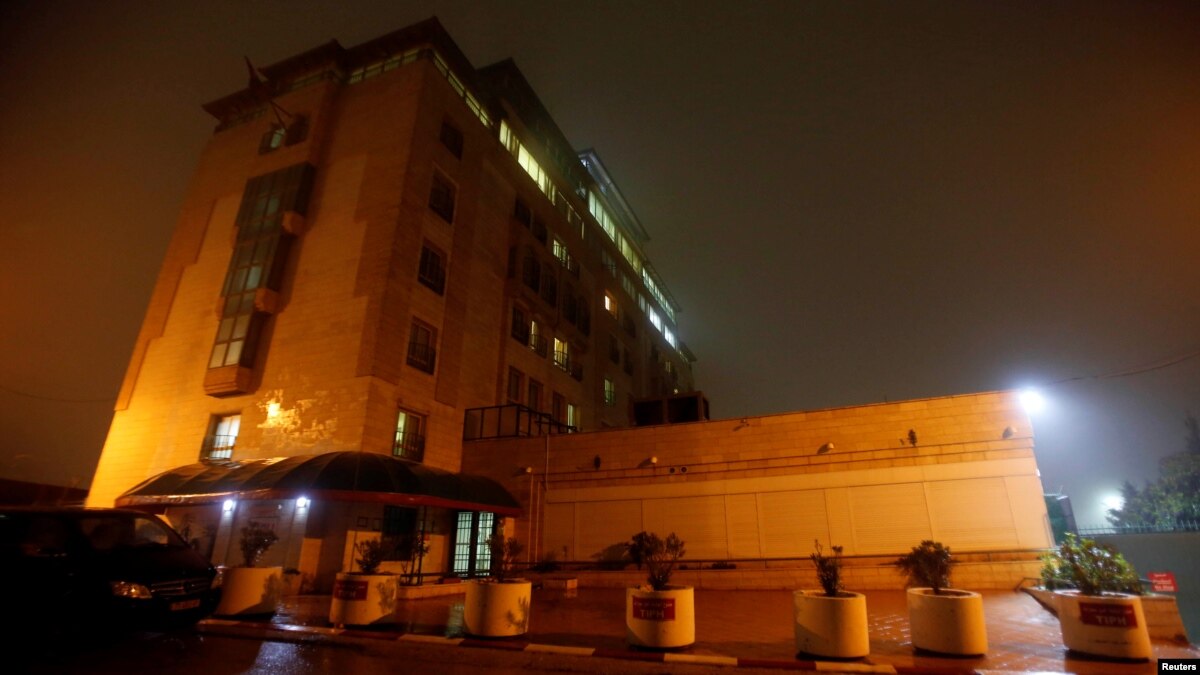
Israeli Prime Minister Benjamin Netanyahu said on Monday he would eject a foreign force set up to help safeguard Palestinians in a flashpoint city in the occupied West Bank, accusing the observers of anti-Israel activity.
"We will not allow the continued presence of an international force that acts against us," Netanyahu said in a statement announcing that the Temporary International Presence in Hebron's (TIPH) mandate would not be renewed.
The statement did not elaborate on the alleged misconduct of TIPH, which draws staff from Norway, Italy, Sweden, Switzerland and Turkey. The TIPH website says the force works on six-month mandates but did not specify when the current one expires.
A force spokesman declined comment. Palestinians denounced the move.
"The Israeli government's decision means it has abandoned the implementation of agreements signed under international auspices, and given up its obligations under these agreements," said Nabil Abu Rudeineh, spokesman for Palestinian President Mahmoud Abbas, whose peace talks with Netanyahu stalled in 2014.
Conservative Israeli commentators had accused the TIPH of agitating against Jewish settlers who live under heavy Israeli army protection in Hebron, a biblical city with an overwhelmingly Palestinian populace.
The TIPH was set up after a settler killed 29 Palestinians at a Hebron shrine holy to both Muslims and Jews in 1994.
Since Israel partially withdrew from Hebron in 1998 under interim peace deals with the self-rule Palestinian Authority, the TIPH has "observe[d] and report[ed] on breaches of the agreements (and) violations of international humanitarian law and international human rights law," the force's website says.
Most world powers consider Israel's settlements in the West Bank, where Palestinians want a state, to be illegal. Israel disputes this, and the rightist Netanyahu has played up his pro-settler credentials as he seeks reelection in an April 9 ballot.
"They want to uproot us from here. They will not," he said in separate remarks on Monday at another West Bank settlement.
"There's a line of thought that says that the way to achieve peace with the Arabs is to be extirpated from our land. That is the certain path to achieving the opposite of this dream.”
Trump Warns Europeans Not to Try to Evade Iran Sanctions
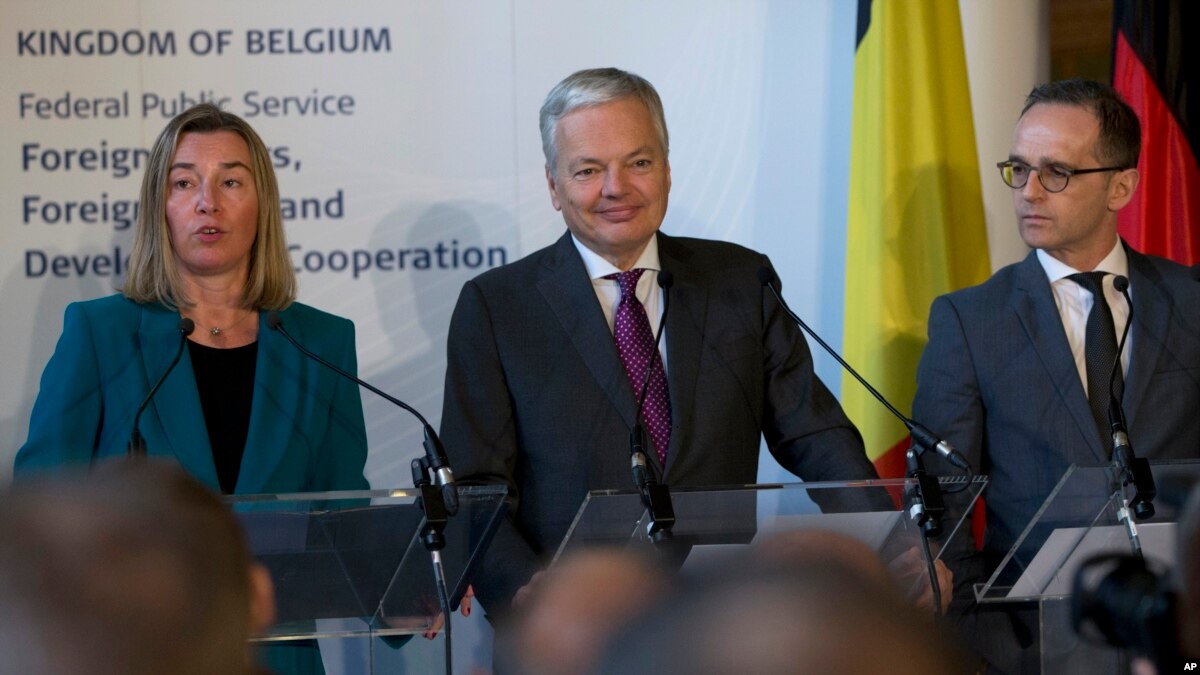
The Trump administration is closely eyeing efforts in Europe to set up an alternative money payment channel to ease doing business with Iran and avoid running afoul of sanctions the U.S. has levied on the Islamic republic.
The White House is putting the Europeans on notice, saying if they try to do an end-run around U.S. sanctions on Iran, they will be subject to stiff fines and penalties. Unfazed, the European Union is marching forward with the plan, which, if implemented, could further strain trans-Atlantic relations.
German Foreign Minister Heiko Maas said Monday the EU was on the verge of setting up the alternative channel to send money to Iran that would side-step U.S. sanctions on Tehran. He said Germany had been working on it in recent months with Britain, France and other EU partners.
"This has always been our goal and we will implement it," Maas said.
The EU has struggled to keep alive the Iran nuclear deal since President Donald Trump pulled out of it last year. The bloc has already introduced measures to stop European companies from complying with the U.S. sanctions without authorization from Brussels.
Getting out ahead of a possible announcement, a senior administration official told The Associated Press on Friday that the U.S. will fully enforce its sanctions and hold individuals and entities accountable for undermining them. The official spoke on condition of anonymity to discuss the issue.
"The choice is whether to do business with Iran or the United States," Sen. Tom Cotton, R-Ark., told the AP. "I hope our European allies choose wisely."
The U.S. joined China, France, Germany, Russia and Britain in signing a pact with Iran in 2015 that offered to lift economic sanctions in exchange for Tehran's pledge to rein in its nuclear weapons program.
President Donald Trump called it a "horrible, one-sided deal." He pulled out of the pact last year and restored punishing U.S. sanctions on Iran. Tehran, which denies wanting nuclear weapons, continues to abide by the agreement, and the remaining five nations in the pact are trying to keep it intact.
Restoring the sanctions regime is part of the Trump administration's "maximum pressure campaign" on the Iranians to force them to radically alter their policies on developing ballistic missiles, supporting regional militant groups and violating human rights.
The U.S. has many concerns about the alternative payment system, according to an outside Trump administration adviser. The adviser spoke on condition of anonymity to discuss the key U.S. worries.
Long-term, the U.S. worries that the alternative money payment system could become successful enough to compete with the international bank transfer system known as SWIFT. The fear is that it could eventually supplant SWIFT as the leading global vehicle for financial institutions to send and receive information about banking transactions.
Secondly, the U.S. is concerned that other countries might try to route transactions through the European system just to circumvent U.S. sanctions, the adviser said. Thirdly, while the Europeans have signaled that the alternative money transfer system would be used only for humanitarian transactions, the U.S. is suspicious that it could be used for non-humanitarian transactions to evade U.S. sanctions, the adviser said.
"We should oppose efforts to create foreign financial channels that Iran could use to circumvent America's maximum pressure campaign against it, especially when humanitarian exceptions are already in U.S. sanctions laws," Sen. Marco Rubio, R-Fla., told the AP.
As the administration prepares for the potential fallout from the possible European move, it is pressing ahead with its sanctions campaign against Iran and preparing to co-host with Poland next month a conference that will focus on combatting Iranian threats.
On Thursday, Treasury imposed sanctions on two Iran-backed militias in Syria and on Qeshm Fars Air, an Iranian civilian airline it accuses of ferrying weapons and personnel to Syria to support President Bashar Assad's government. The sanctions block any assets those targeted might have in U.S. jurisdictions and bar Americans from doing business with them.
At the same time, the State Department told Congress earlier this month that it would waive some Iranian sanctions to allow U.S. companies to sell spare parts to Iranian airlines, which need them to operate aging, American-built Boeing jets.
The waivers raised questions on Capitol Hill because some lawmakers are weighing legislation to specifically target Iran's civilian aviation sector. And Iran hawks outside the administration have expressed concern too.
Mark Dubowitz, the chief executive of the Foundation for the Defense of Democracies, said Iran's aviation sector is being used by the Iranian Revolutionary Guard Corps, a branch of the Iranian military that has ties to militant networks, which Iran uses to expand its influence in the region and abroad.
"What effective controls does the administration have in place to ensure that the aircraft receiving these licensed services are not facilitating Iran's support for these destructive activities?" he asked.
Read More Trump Warns Europeans Not to Try to Evade Iran Sanctions : http://bit.ly/2HCVCpEUN Khashoggi Investigator Meets With Turkish Officials
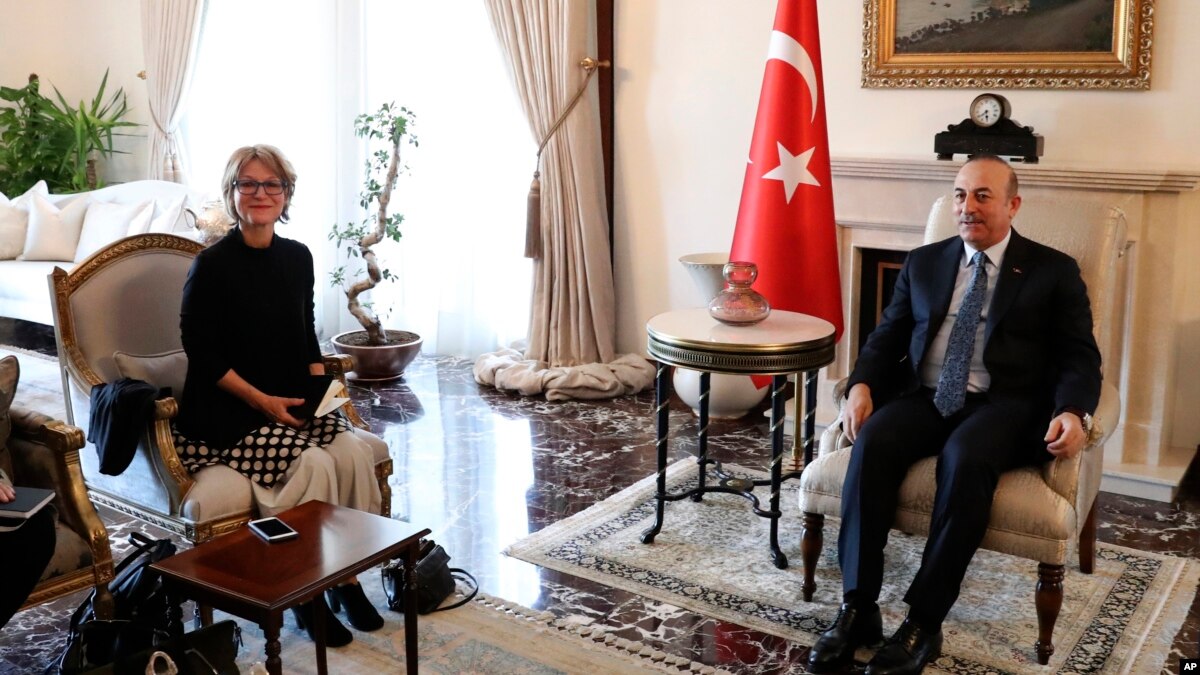
Turkey's foreign minister met Monday with the U.N. judicial expert investigating the murder of Saudi journalist Jamal Khashoggi as Ankara calls for an international inquiry.
U.N. special investigator Agnes Callamard will be in Turkey until Saturday for a series of meetings with authorities, including Istanbul's chief prosecutor.
Saudi officials have not confirmed whether they have responded to Callamard's request to meet the Saudi Ambassador in Turkey and to visit the kingdom as part of her investigation.
Turkey's Foreign Minister foreign minister Mevlut Cavusoglu posted a tweet following the meeting.
Khashoggi, a Washington Post columnist, was murdered in the Saudi consulate in Turkey on October 2nd.
U.S. intelligence officials believe the killing was a direct order from Saudi prince Mohammed bin Salman — a notion that Riyadh has denied. Khashoggi's dismembered body remains unaccounted for.
Initially Saudi Arabia said he safely left the site on his own, but later admitted he was killed there in what Saudi officials called a rogue operation.
Turkey said the order to kill Khashoggi came from the highest levels of the Saudi government, but Saudi officials maintain it was not ordered by the Saudi crown prince.
Ancient Wine Cellars Discovered in Egypt's Nile Delta
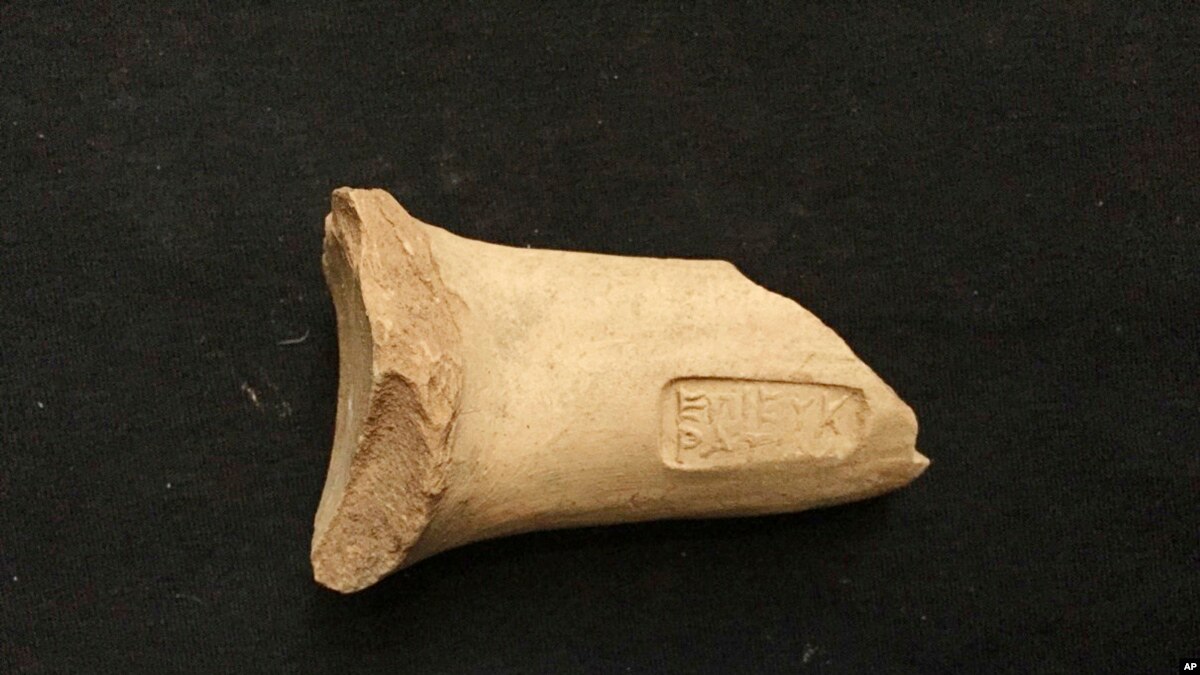
Archaeologists have found wine cellars dating back to the Greco-Roman period in Egypt's Nile Delta.
The Antiquities Ministry says Monday that the excavations took place in Tel Kom al Trogy, north of Cairo, an area known for producing fine wines in antiquity. There was no wine found in the storage galleries.
Mostafa Waziri, secretary general of the Supreme Council of Antiquities, says the storage rooms were built out of mud-brick with irregularly shaped limestone blocks inside, apparently to control the temperature.
The Greco-Roman period in Egypt spans from its fall to Alexander the Great in the 4th century B.C. to the Islamic conquest in the 7th century.
Egypt hopes such discoveries will spur tourism, which suffered a major setback during the unrest that followed the 2011 uprising.
Bahrain Court Upholds Life Sentences for Opposition Figures
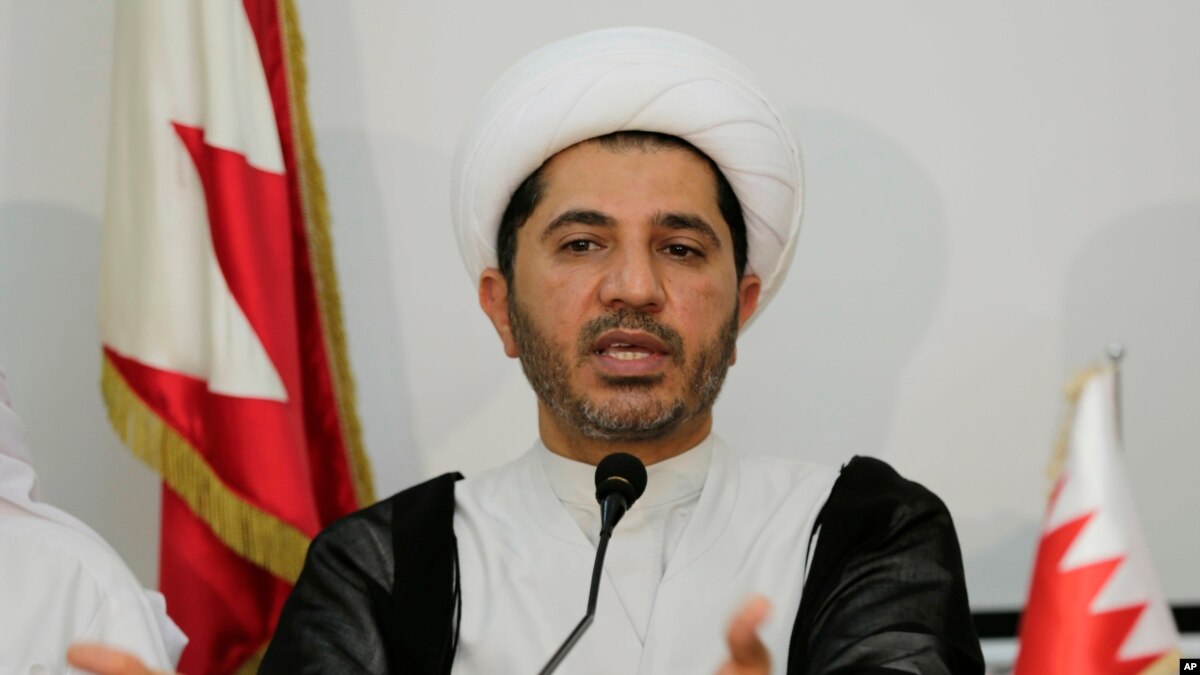
Bahrain's highest court on Monday upheld life sentences for a prominent Shi'ite cleric who led the country's now-outlawed opposition party and two of his colleagues after their earlier acquittal, continuing a yearslong crackdown on all dissent in the island nation.
Sheikh Ali Salman, a central figure in Bahrain's 2011 Arab Spring protests and the secretary-general of the barred Al-Wefaq political party, is already serving a nine-year prison sentence.
The Court of Cassation's ruling Monday ensures he won't be released and continues an imprisonment that United Nations experts have criticized as “a breach of his fundamental human rights.”
The case against Salman and former Al-Wefaq lawmakers Sheikh Hassan Ali Juma Sultan and Ali Mahdi Ali al-Aswad, both of whom are abroad, involves allegations the men spied for Qatar amid the 2011 protests.
The charges came after Bahrain state television aired recorded telephone calls between Salman and Qatar's then-Prime Minister Sheikh Hamad bin Jassim Al Thani. It remains unclear who gave state television the recordings, though activists suspect the island's intelligence services leaked the call.
Bahrain, home to the U.S. Navy's 5th Fleet and a British naval base, is one of four Arab countries that have been boycotting Qatar since June 2017 as part of a wider diplomatic dispute.
The call between Salman and the Qatari official at the time was aimed at peacefully resolving the 2011 protests, which ended when Bahraini, Emirati and Saudi security forces violently put down the demonstrations. A government-sponsored report later noted Bahrain's opposition accepted Qatar's mediation while Bahrain's government rejected it.
A lower court initially acquitted the three men. Bahrain's Supreme Court of Appeals later overturned that verdict and found them guilty in November. The Court of Cassation's ruling Monday, reported by the state-run Bahrain News Agency, confirmed the verdict.
Activists immediately criticized the ruling.
“This is political revenge and an insult to justice,” said Sayed Alwadaei, the director of advocacy at the Bahrain Institute of Rights and Democracy. “Punishing peaceful dissidents for leading protests against the corrupt ruling family has nothing to do with justice.”
Amnesty International called for Salman's immediate release.
“Today's verdict is yet another nail in the coffin for the right to freedom of expression in Bahrain and exposes the country's justice system as a complete farce,” said Samah Hadid, Amnesty's Middle East campaigns director.
Macron Presses Egypt on Human Rights During Visit
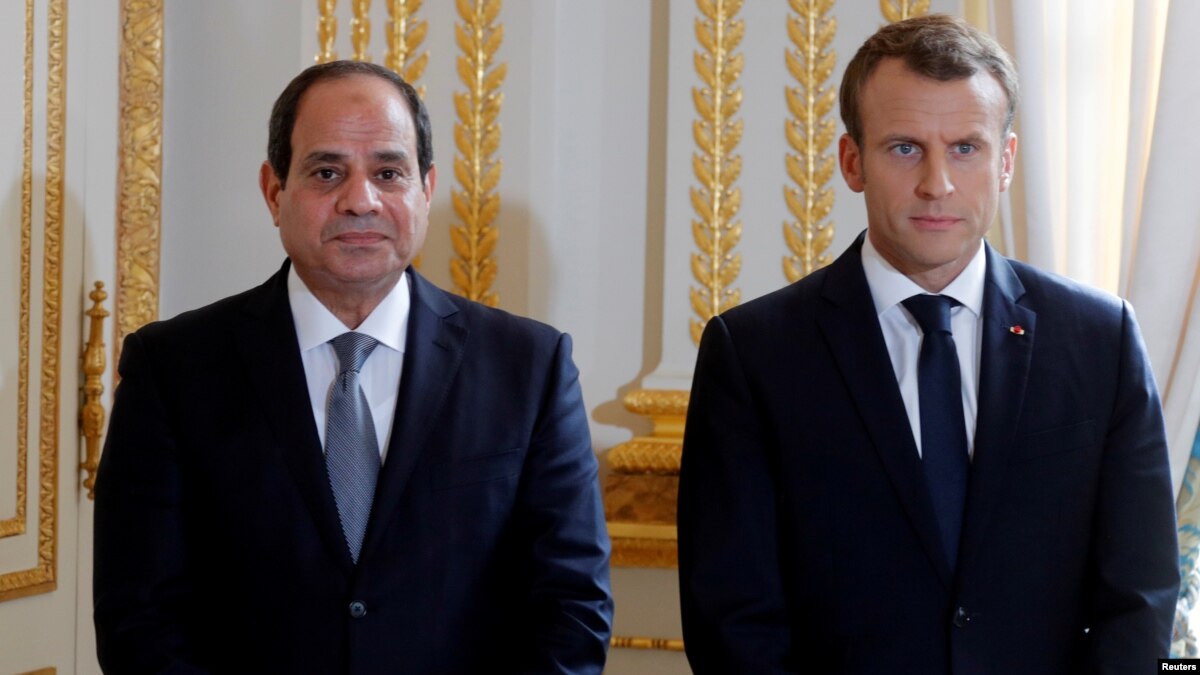
French President Emmanuel Macron said he encouraged respect for human rights when he met Monday with Egyptian President Abdel-Fattah el-Sissi, who is seen as a key ally in the fight against Islamic extremists but has led an unprecedented crackdown on dissent.
Macron, heading a large delegation on a three-day trip to the Arab world's most populous country, said ahead of the talks that he wanted to "pursue a truthful dialogue on topics of public freedoms and human rights" — something he has raised with officials in past meetings.
France, which considers itself the birthplace of human rights, has come under pressure from rights groups and activists to raise the matter with el-Sissi, who led the military overthrow of an elected but divisive Islamist president in 2013.
Since then, authorities have jailed thousands of people, mainly Islamists but also a number of prominent secular activists, including many of those behind the 2011 uprising that toppled longtime autocrat Hosni Mubarak. Egypt has also been accused of arbitrary detention, disappearances and torture, and has silenced most independent media.
Authorities say they are fighting terrorism and trying to restore stability after years of unrest.
Macron said that too many ordinary people "who do not threaten the regime's stability" have been jailed.
"It is on this area of what is happening in Egypt that I will continue to focus things. I will do it more openly during this trip," Macron told reporters late Sunday, adding that better treatment for political opponents was in the interest of el-Sissi and Egypt.
Macron said he felt the current crackdown had become worse than those led by Mubarak.
"What is happening here sooner or later threatens the stability of Egypt," Macron said. "The policies as they are being done are perceived by intellectuals, the Egyptian civil society, as being even stronger than [under] the Mubarak regime."
Macron also said that he would raise specific names with el-Sissi in a closed-door discussion.
Rights groups and activists have urged France and other Western powers to halt weapons sales to Egypt, a major purchaser, until it shows improvement in the way it treats its own citizenry. But Macron dismissed using such pressure, saying it was important to respect Egypt's sovereignty. He warned that in the absence of Western support, Egypt could turn to China and Russia. El-Sissi is already courting both.
Asked specifically if human rights issues could affect specific arms sales, such as one under discussion for additional Rafale advanced fighter jets to Egypt, Macron said such matters were separate.
"I would differentiate between the two subjects, they are not linked for us and they never were."
Macron arrived Sunday in Egypt and visited the country's south, where he toured the famed temple of Abu Simbel and other archaeological sites. He is to meet el-Sissi later on Monday, when he will sign several bilateral accords.
His delegation includes government ministers, two dozen representatives from academic, cultural, and scientific fields, and a dozen business leaders — including the heads of Rafale producer Dassault.
Macron will also dine with local business leaders and meet the heads of Egypt's Christian and Muslim communities during the trip, his first to Egypt since taking office in 2017.
Sunday, January 27, 2019
Sudan's Embattled Leader Visits Egypt, Meets Counterpart
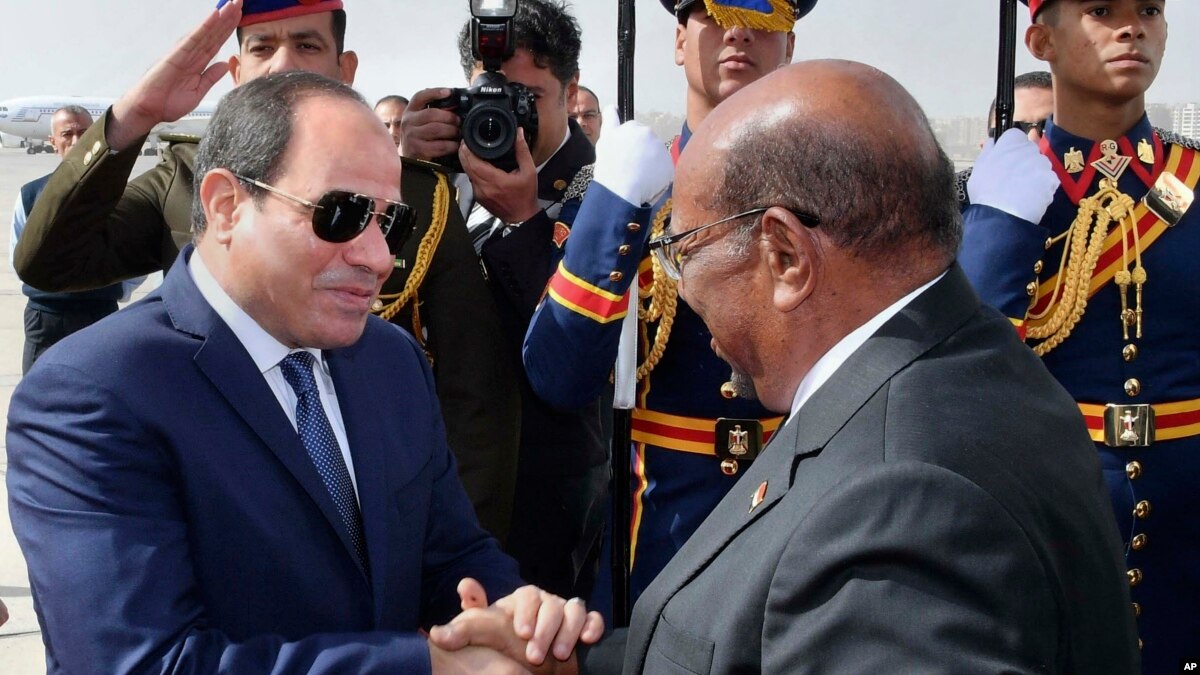
Sudan's embattled President Omar al-Bashir has traveled to Cairo as popular demonstrations against his 29-year rule continue to shake the country.
Arriving Sunday for a short visit, al-Bashir met with President Abdel-Fattah el-Sissi to discuss deepening relations and improving economic ties.
A statement released by Egypt's presidency did not mention the monthlong protests that have rattled al-Bashir's rule, only saying that Egypt supported Sudan's stability.
Al-Bashir, who took power in a 1989 military coup, has said any change of leadership could only come through the ballot box. He is expected to run for another term in office next year.
Al-Bashir was indicted in 2010 by the International Criminal Court for genocide in Darfur. He restricts his travel to friendly Arab and African countries.
Syria Air Defenses Target Suspected Drones over Russia Base
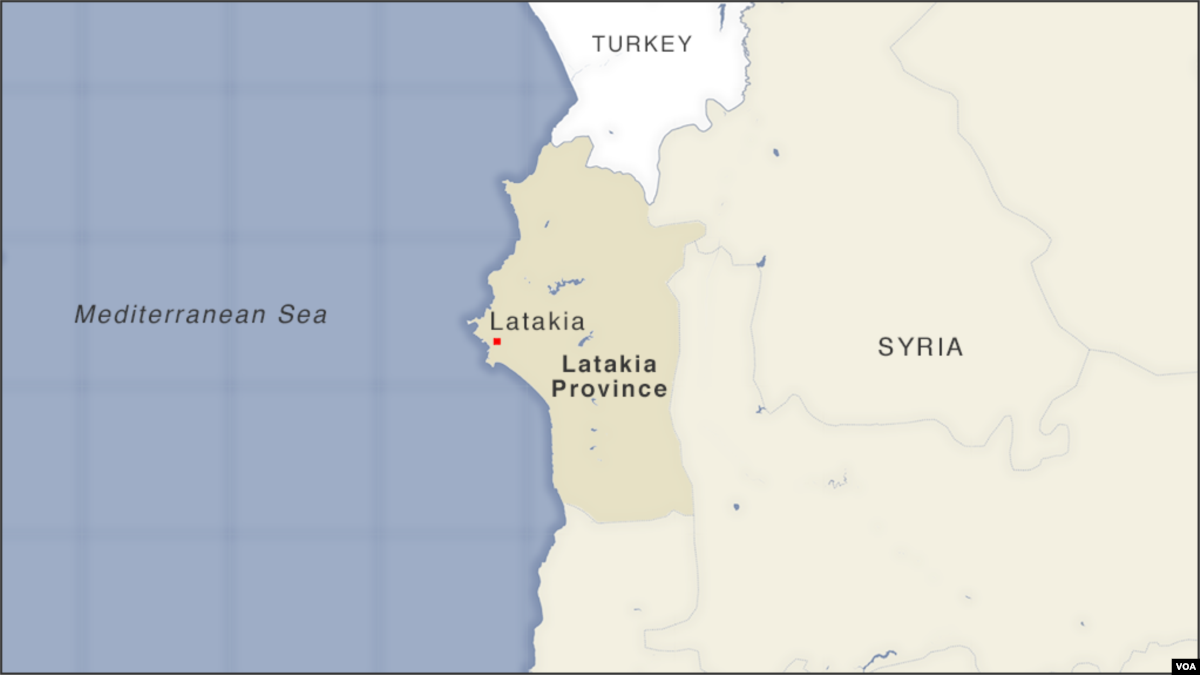
Syria state media is reporting that the country's air defense systems have destroyed three "hostile" targets in the country's coastal region over a Russian air base.
The Britain-based monitoring Syrian Observatory for Human Rights says explosions heard Sunday resulted from the air defense systems intercepting suspected attacking drones, which had previously targeted the Russian air base in Latakia province.
Militants in nearby Idlib province last launched an armed drone toward the base in November violating a cease-fire in place two months earlier.
But the Russian-Turkey sponsored cease-fire has in recent days has seen increasing violations after radical al-Qaida-linked militants pushed out other armed groups, effectively seizing control of the area home to nearly 3 million civilians. Russia complained last week al-Qaida-linked group's hold increasingly threatened its air base.
Israeli Holocaust Survivor Remembers Auschwitz on Birthday
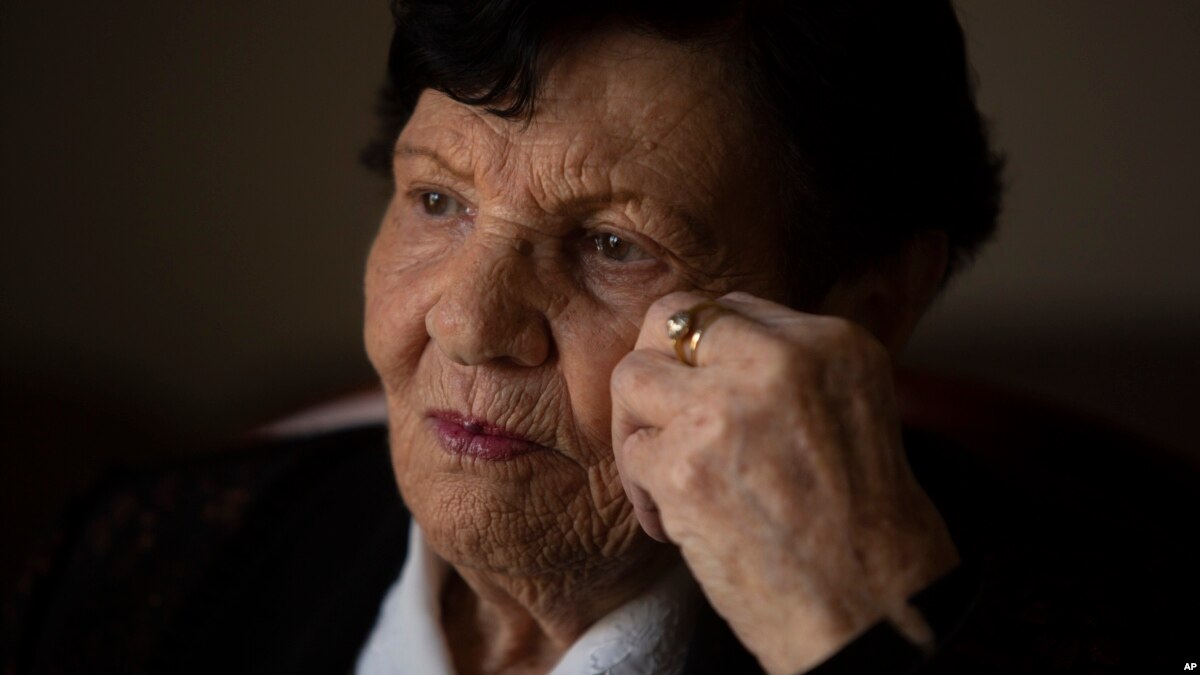
As the world commemorates the anniversary of the liberation of Auschwitz on International Holocaust Remembrance Day Sunday, death camp survivor Cipora Feivlovich marks her own personal milestone as she turns 92.
Feivlovich has spent her most recent birthdays recounting to audiences in Israel and Germany her harrowing experiences in the camp, where her parents, brother and best friends all perished.
Despite witnessing daily atrocities and fearing that the toxic food and injections she was given would make her infertile, she eventually married her husband Pinchas, a fellow orphaned survivor, and started a new family. Today she has dozens of grandchildren, great-grandchildren and great-great-grandchildren.
"When we first met after the war he asked me if I thought I could have children after everything I went through in Auschwitz. And I said 'I don't promise anything. What the Lord gives is what will be,'" she recalled from her home in Jerusalem. "We understood each other. He always said he was lucky to marry me since I understood him."
But for the following decades, as he obsessively wrote and lectured about his six-year Holocaust ordeal in multiple concentration camps and the trauma of losing eight siblings and his entire extended family, she kept quiet to try and raise their three children in Israel in relative normalcy. Only in the 1990s, long after the kids had moved out, did she finally start processing her own troubled history.
Six million Jews were killed by the Nazis and their collaborators during the Holocaust, wiping out a third of world Jewry. Israel's main Holocaust memorial day is in the spring — marking the anniversary of the Warsaw Ghetto uprising. The United Nations designated Jan. 27 as the annual international commemoration, marking the date of Auschwitz's liberation in 1945, the day Feivlovich turned 18.
She grew up in a Transylvanian village with a large Jewish population and lived a normal life until she was 14, when she and the other Jewish students were kicked out of school.
She said her family holed up in their home for the following years, fearful of their anti-Semitic neighbors, and naively waited for the storm to pass. But then the Nazis arrived in 1944, took them away in the middle of the night and crammed all Jewish residents into the local synagogue.
"Two days we sat on the floor, you couldn't leave for the restrooms so people relieved themselves where they are sitting," she recalled. "On both sides of the street the non-Jews were standing and clapping their hands saying: 'Bravo, we are getting rid of the Jews.'"'
After a brief stay in a Hungarian ghetto, they were deported on the three-day train ride to Auschwitz, with each cattle wagon packed shoulder to shoulder.
"My grandfather died there while standing. We couldn't even lay him down. And in that miserable state we got to our final destination," she said. There, they were greeted with barking dogs, screams and a warning: "Young mothers, hand your babies to grandmothers or aunts and maybe you will live."
Feivlovich and her younger sister were thrown to one side, the boys to the other. They never saw their parents again.
The girls were ordered to strip. Their hair was cut and they were hosed with freezing water and marched outside naked, shivering with cold and shame.
"The Nazis are teasing us, spitting on us and watching us there miserable," she said.
After finally getting dresses to wear, they were approached by a tall man in a polished uniform who introduced himself as Josef Mengele, the notorious Nazi doctor. He pointed to a huge chimney spewing thick black smoke and told them anyone not essential to the Third Reich would go straight to the crematorium.
"I'm holding my sister's hand, and we are shaking and crying and I ask: 'Is this possible?'" she remembered.
Starved and exhausted, she and hundreds of other Jewish prisoners were presented with a large liquid-filled barrel.
"The moment we took that first sip in our mouth, everyone started screaming insanely. It was like a million pins in your throat. You couldn't swallow the soup," she remembered. "But we learned to drink that poisoned soup since there was nothing else to eat."
She said they were told it was laced with toxin to help kill off the Jewish race and prevent it from reproducing. Feivlovich said she believed it since she stopped menstruating for a long time after.
Those already pregnant faced an even worse fate. In one case, a pregnant relative named Sarah was not allowed to go to the infirmary and forced to give birth on the floor. Usually, the Nazis took Jewish newborns away, never to be seen again. But in this case, they ordered the mother to drown her own baby in a pail of water.
By the time Auschwitz was liberated, she had already been transported to forced labor in a German armament factory. Even there she wasn't safe. The camp commander ordered her to receive a mysterious injection for talking back and refusing to make the Christian sign of the cross on herself.
She awoke after two days. By then, the war was winding down. The Nazis disappeared and soon an American tank broke through. Yiddish-speaking soldiers comforted the emaciated inmates.
Some 150,000 elderly survivors remain in Israel today, with a similar number worldwide.
Feivlovich said in recent years her birthday has become "obligating," particularly since her husband passed away in 2007.
"My husband demanded of me: Don't stop talking about the Holocaust, because if we don't speak about it there will be enough Holocaust deniers after us," she said. "It is true that 74 years have passed but we are still living and we are here."
Saturday, January 26, 2019
Syria Says Turkey Must Pull Troops to Revive Security Pact
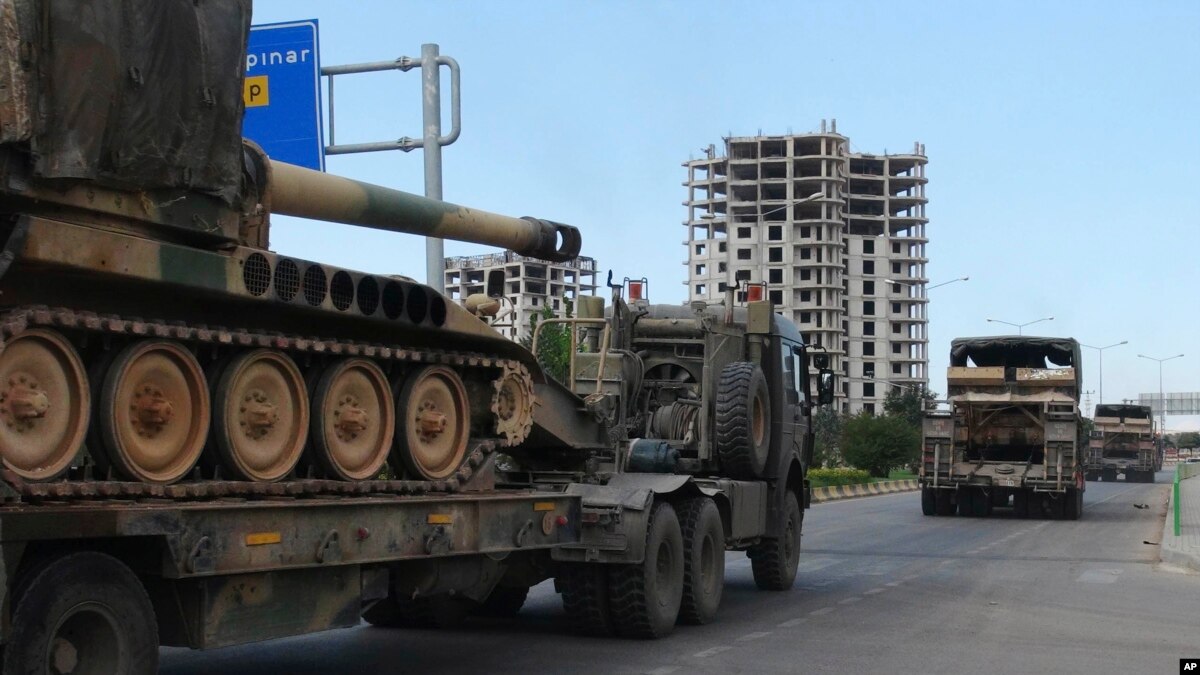
Syria said Saturday that it was ready to revive a landmark security deal with Turkey that normalized ties for two decades before the 2011 conflict if Ankara pulled its troops out of the war-torn country and stopped backing rebels.
In a Foreign Ministry statement, Syria said it was committed to the 1998 Adana accord, which forced Damascus to stop harboring the outlawed Kurdistan Workers' Party (PKK), which has waged an armed insurgency against the Turkish state for decades.
"Syria remains committed to this accord and all the agreements relating to fighting terror in all its forms by the two countries," said the Foreign Ministry statement, released on state media.
Damascus, however, said reviving the Adana deal, which Russian President Vladimir Putin raised during his summit meeting with Turkish President Recep Tayyip Erdogan last week, depended on Ankara ending its backing of rebels seeking to topple Syrian President Bashar al-Assad and pulling its troops out of northwestern Syria.
Turkey has carved a sphere of influence in an opposition-held enclave in northwestern Syria around Idlib province with the help of mainstream Arab rebels whom it backs.
Its troops monitor a buffer zone in the province under a deal with Russia and Iran.
Countering U.S. move
Western diplomatic sources say the timing of Putin's proposal to revive the Adana deal signaled a move to counter U.S. President Donald Trump's recent call to set up a safe zone along the border inside Syria to support the Kurds.
Syria did not mention how it would deal with the U.S.-backed Syrian Kurdish YPG militia, which Ankara says is an extension of the PKK.
The YPG has during the conflict established a Kurdish-led authority that runs much of northern and eastern Syria and that governs millions of ethnic Arabs in former Islamic State territory where most of Syria's oil wealth lies.
The YPG have engaged in dialogue with government officials to safeguard their autonomous region when U.S. troops that back them pull out.
In a speech on Friday, Erdogan, who has long called for the ousting of Assad and whose country hosts millions of Syrians who fled the war, did not disavow the Adana agreement, saying it gave Turkey the right to enter Syrian territory when it faces threats.
Turkey, which has a large Kurdish population, sees Kurdish-controlled territory in Syria as a threat to its national security. It has repeatedly said it would not wait indefinitely to push out the YPG and that only it could establish the safe zone along its borders with Syria.
Search
Featured Post
Tornado Watch for parts of Middle Georgia - wgxa.tv
[unable to retrieve full-text content] Tornado Watch for parts of Middle Georgia wgxa.tv "middle" - Google News December 30...
Postingan Populer
-
[unable to retrieve full-text content] Monroe County Middle School goes virtual next week due to COVID-19 exposure wgxa.tv "middl...
-
Members of the Meany Middle School PTSA are calling on Mayor Jenny Durkan , Seattle Parks , and City of Seattle officials to give a group...
-
The global demand for palm oil is driving the fires in Indonesia Quartz Palm oil is in your infant formula, chips, and shampoo. Develope...